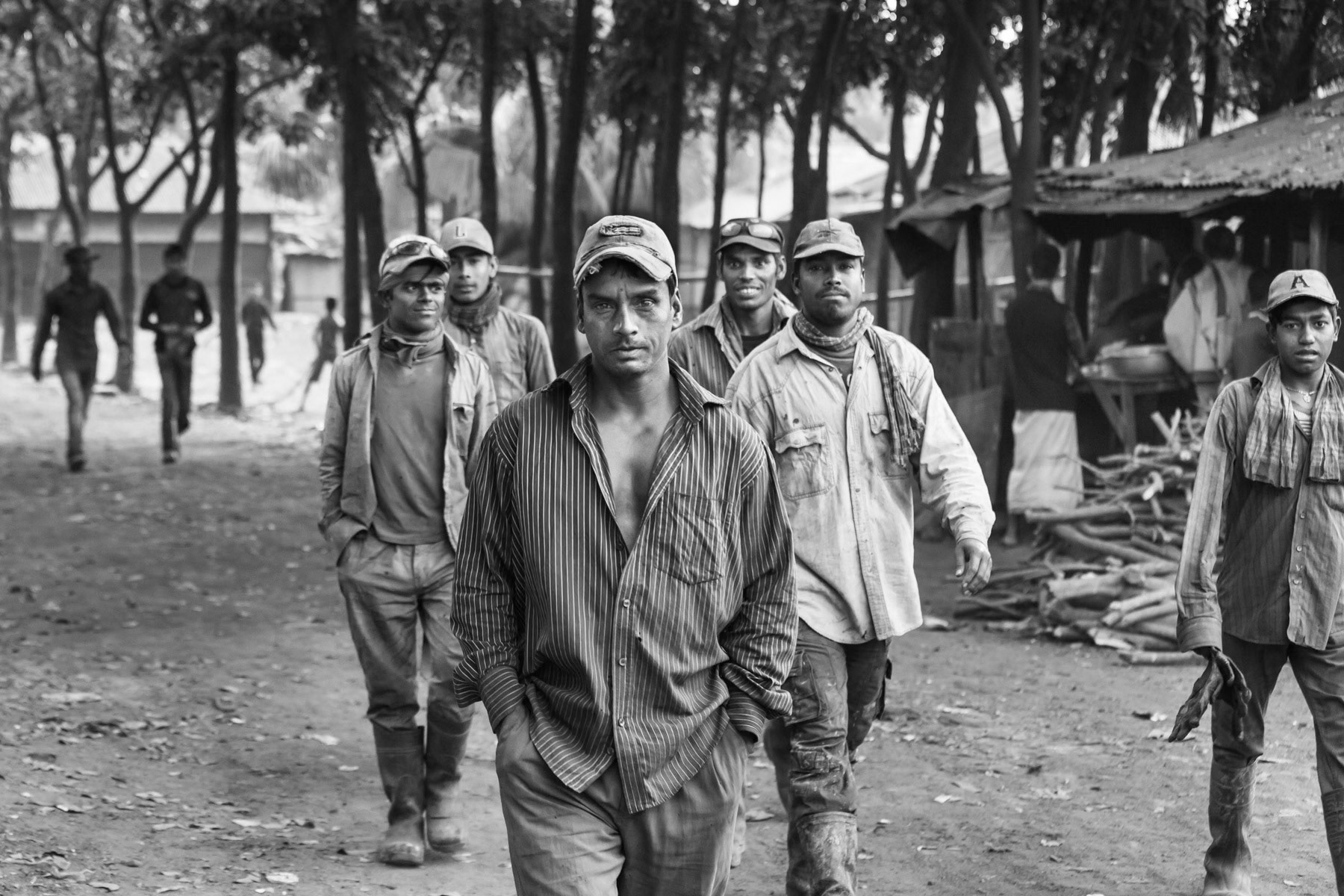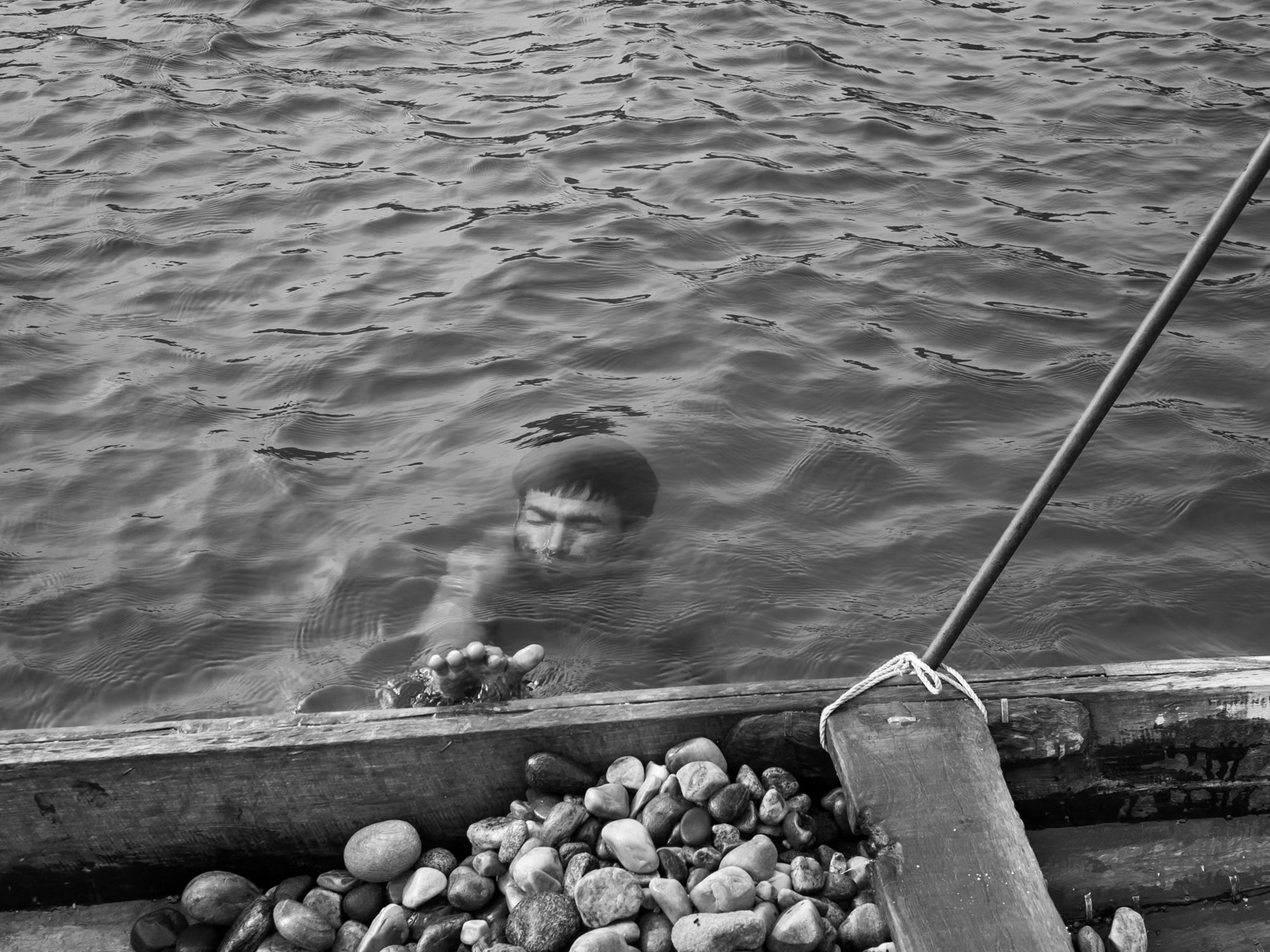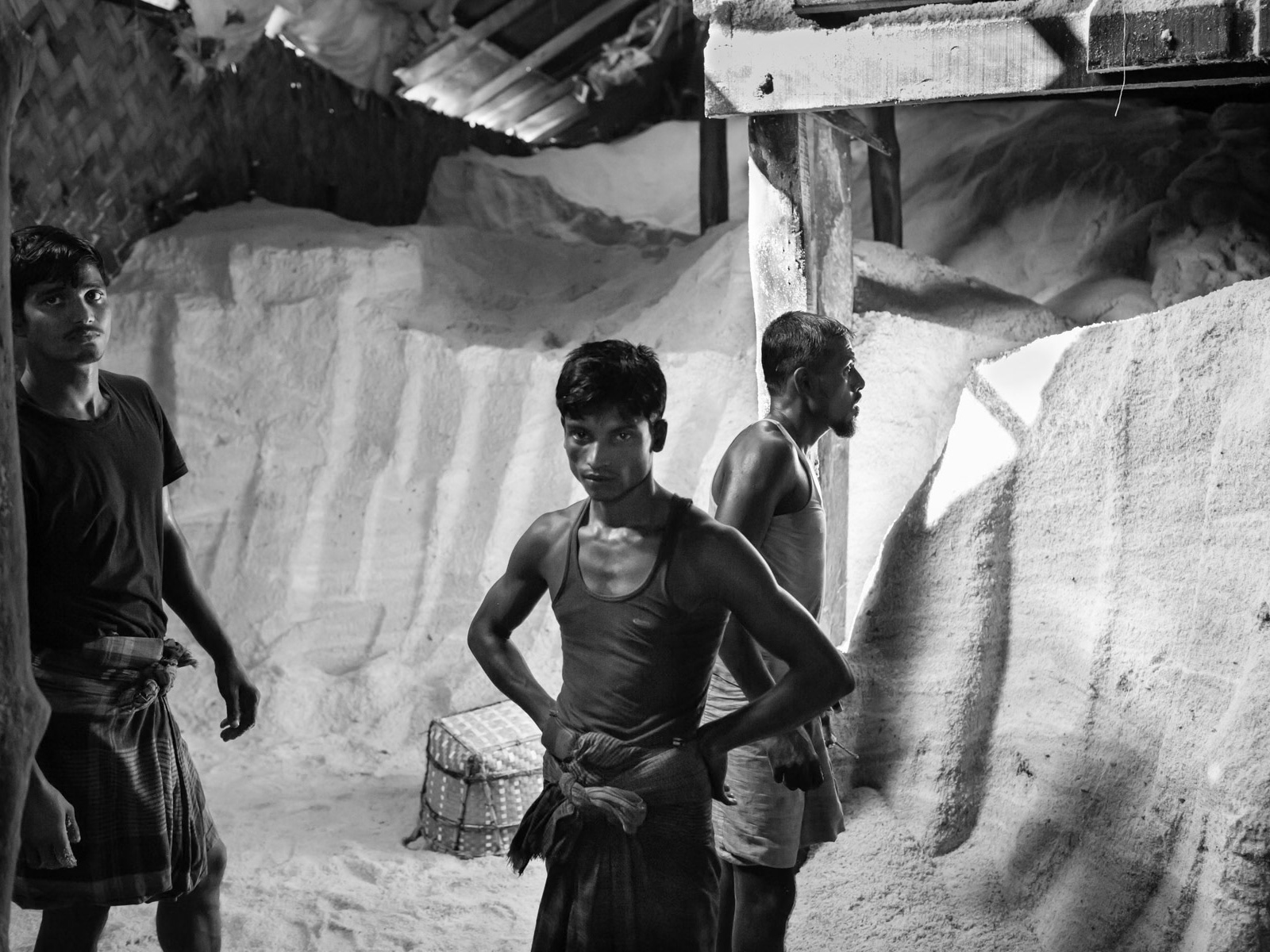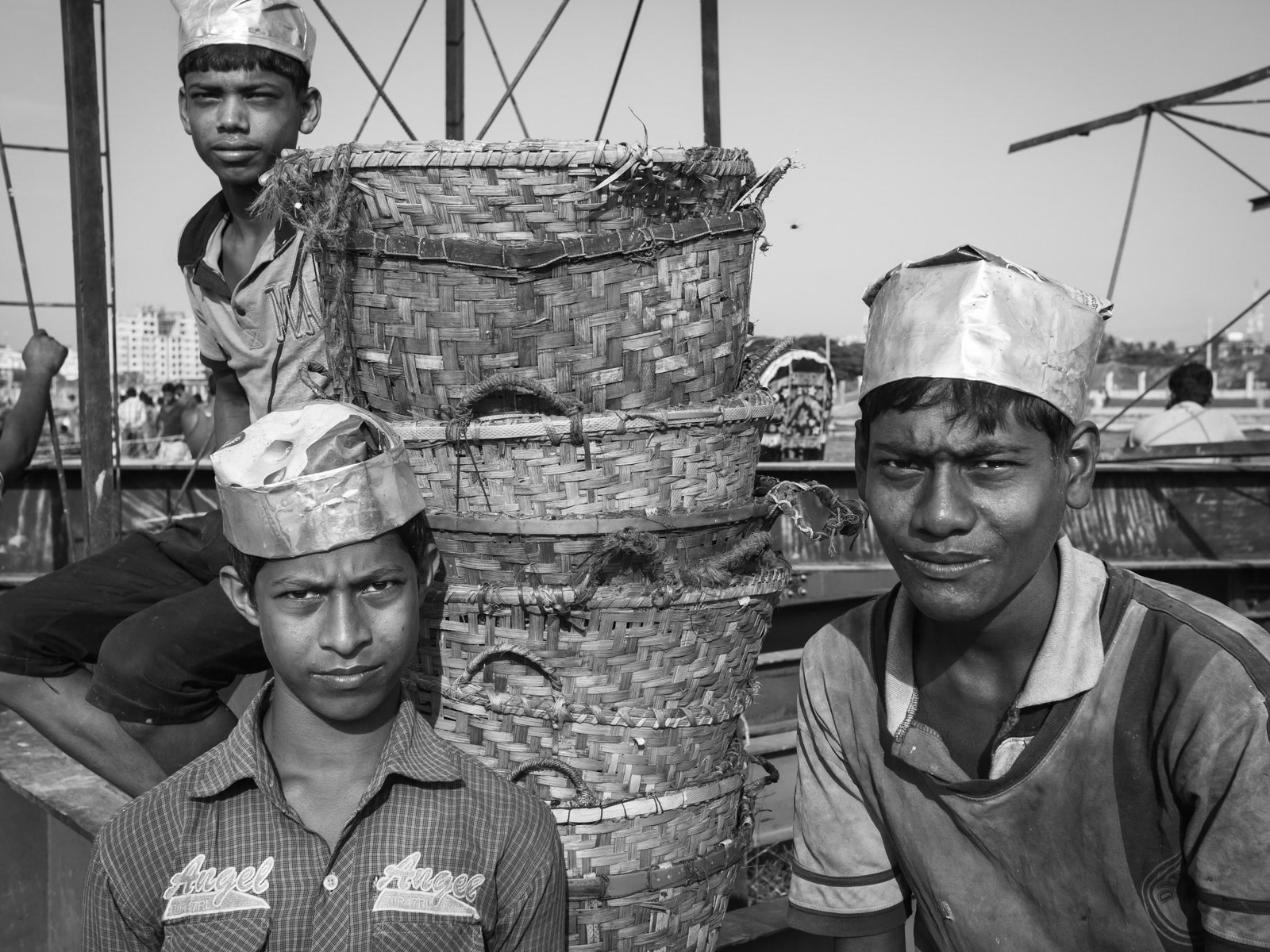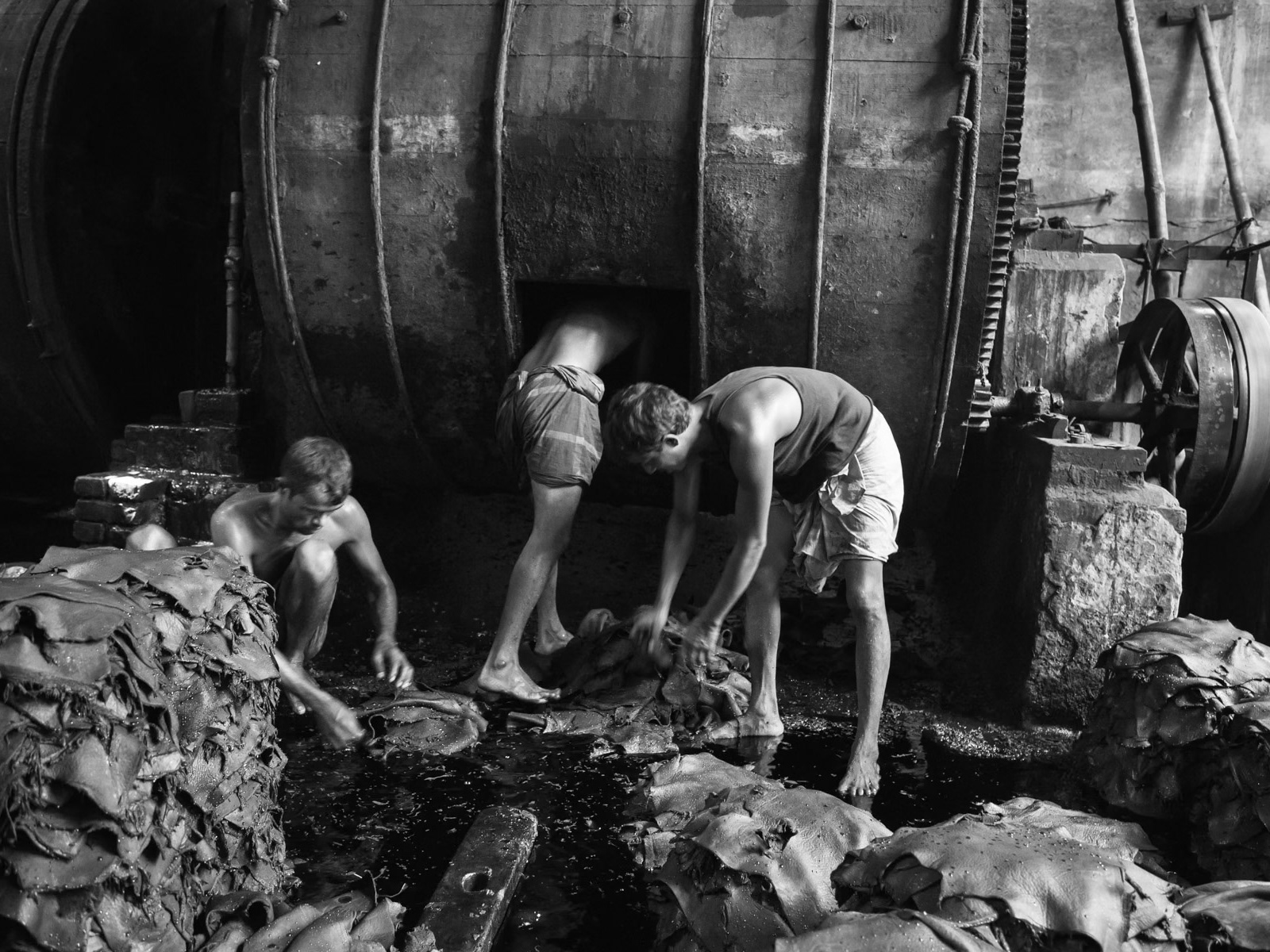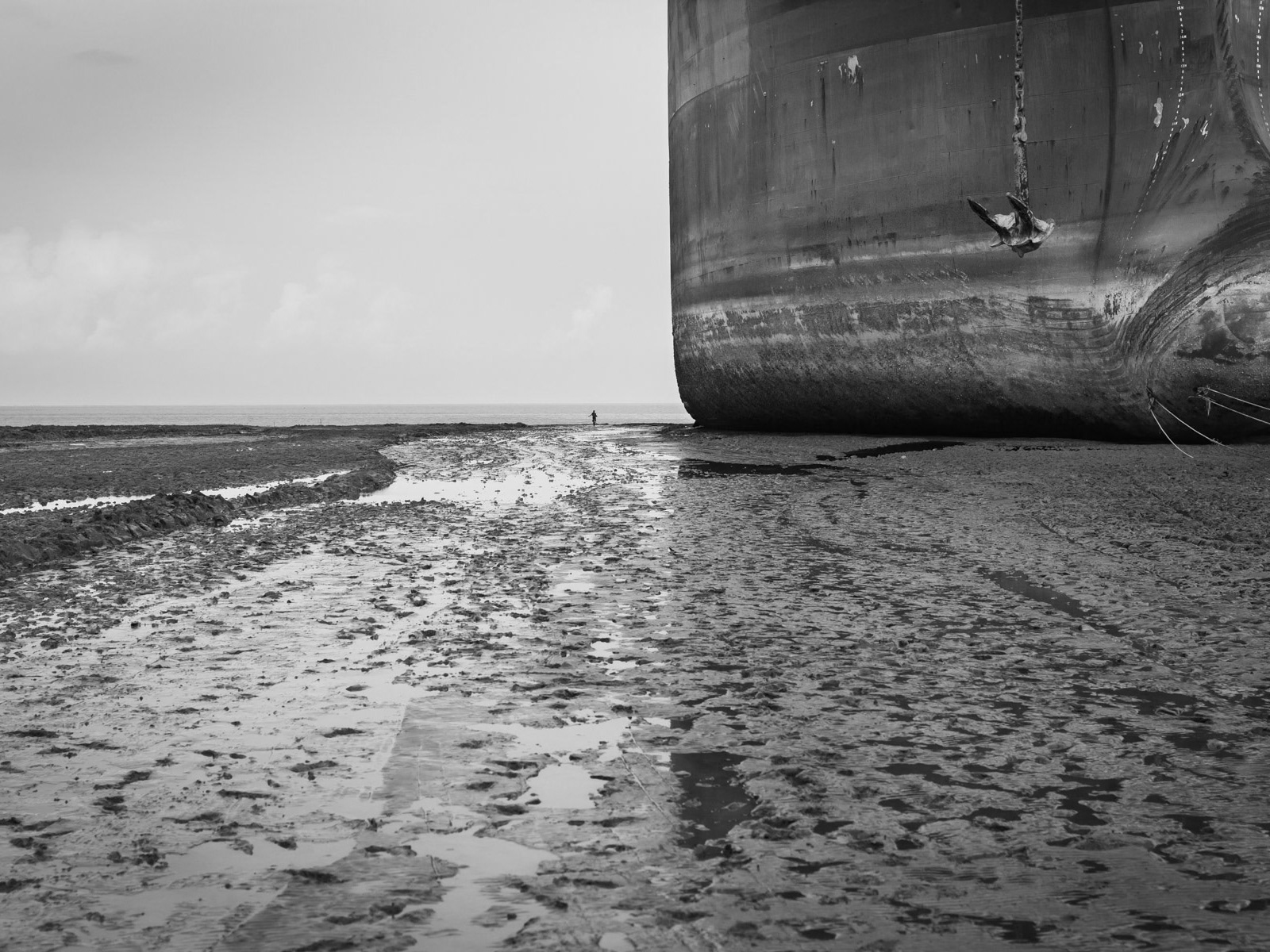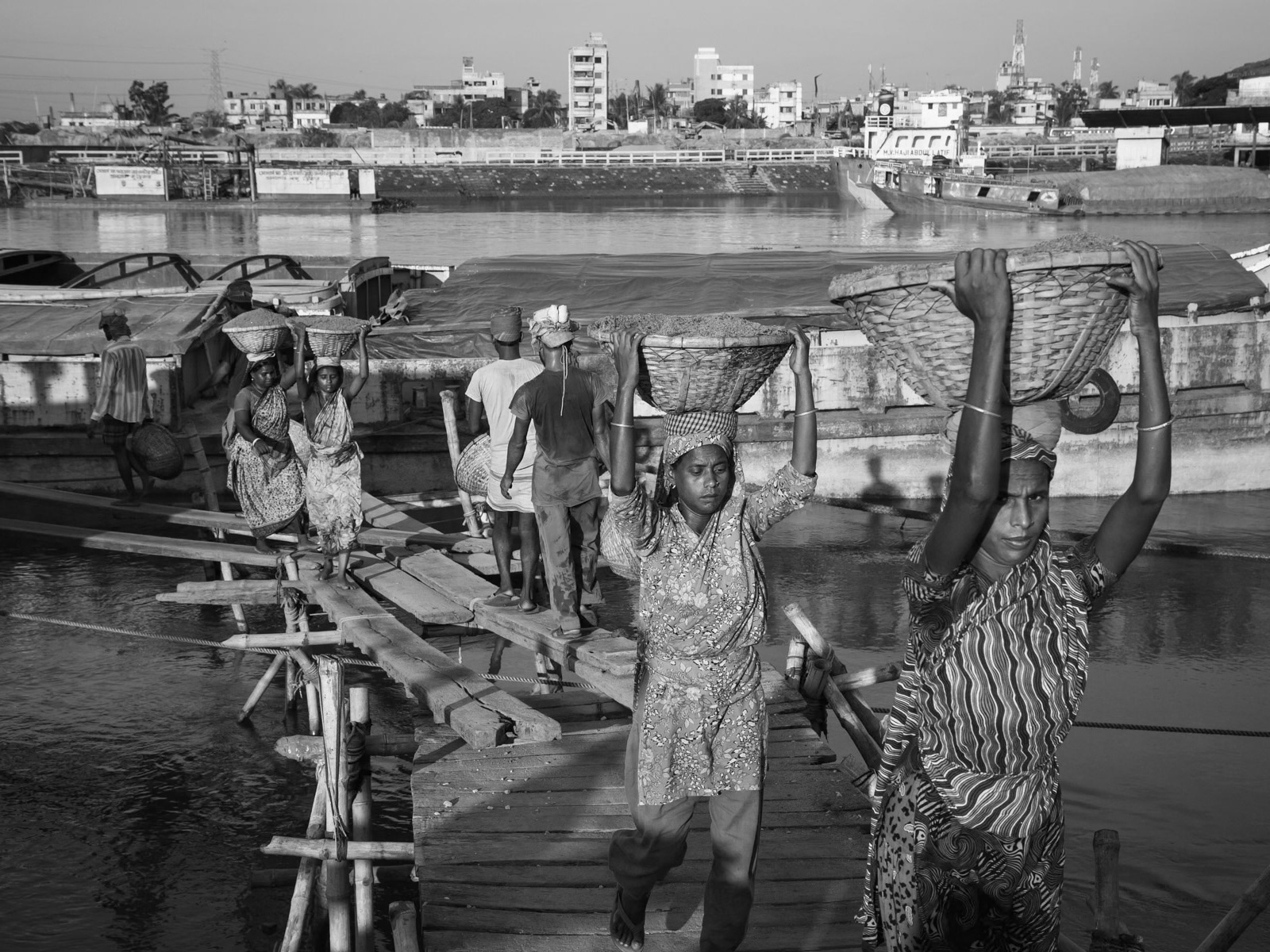The Shipbreaking Industry in Bangladesh: A Notorious Trade
Bangladesh has earned global attention for its controversial shipbreaking industry, a sector shrouded in danger, pollution, and exploitation. This industry revolves around dismantling decommissioned ships—massive vessels deemed unfit for service elsewhere. These ships, which have traversed the world’s oceans, meet their grim fate on the beaches of Bangladesh, where they are systematically stripped to their most minute components. Every piece, from metal to machinery, is either recycled or repurposed, often to create new vessels for the local fleet.
The dismantling process begins when ships are beached at high tide. Once ashore, workers, known as ship cutters, manually disassemble these steel giants. Despite the magnitude of their labor, the working conditions are deplorable. These workers, often lacking even basic safety equipment, endure direct exposure to toxic fumes, oils, and hazardous substances embedded in the ships’ structures. Without protective gear or adequate training, they face severe health risks, from respiratory diseases to life-threatening injuries caused by falling debris or accidents with heavy machinery.
Environmental pollution is another alarming consequence of the shipbreaking industry. Toxic chemicals from these vessels seep into the sand and nearby waters, contaminating marine ecosystems and local fishing zones. Yet, shipbreaking yard owners often ignore these environmental and human costs, driven by the promise of maximum profits. The low operational costs and lax enforcement of safety and environmental regulations make Bangladesh an attractive destination for shipbreaking. This prioritization of profit over people perpetuates the grim cycle of exploitation and environmental degradation.
Despite its notoriety, the industry remains a significant economic contributor, providing materials for Bangladesh’s steel and shipbuilding industries and jobs for thousands of impoverished workers. However, the cost of this economic activity—a high toll on human lives and the environment—cannot be ignored. Without stringent regulations, proper safety measures, and sustainable practices, the shipbreaking industry in Bangladesh will continue to symbolize a troubling blend of profit-driven exploitation and environmental neglect.
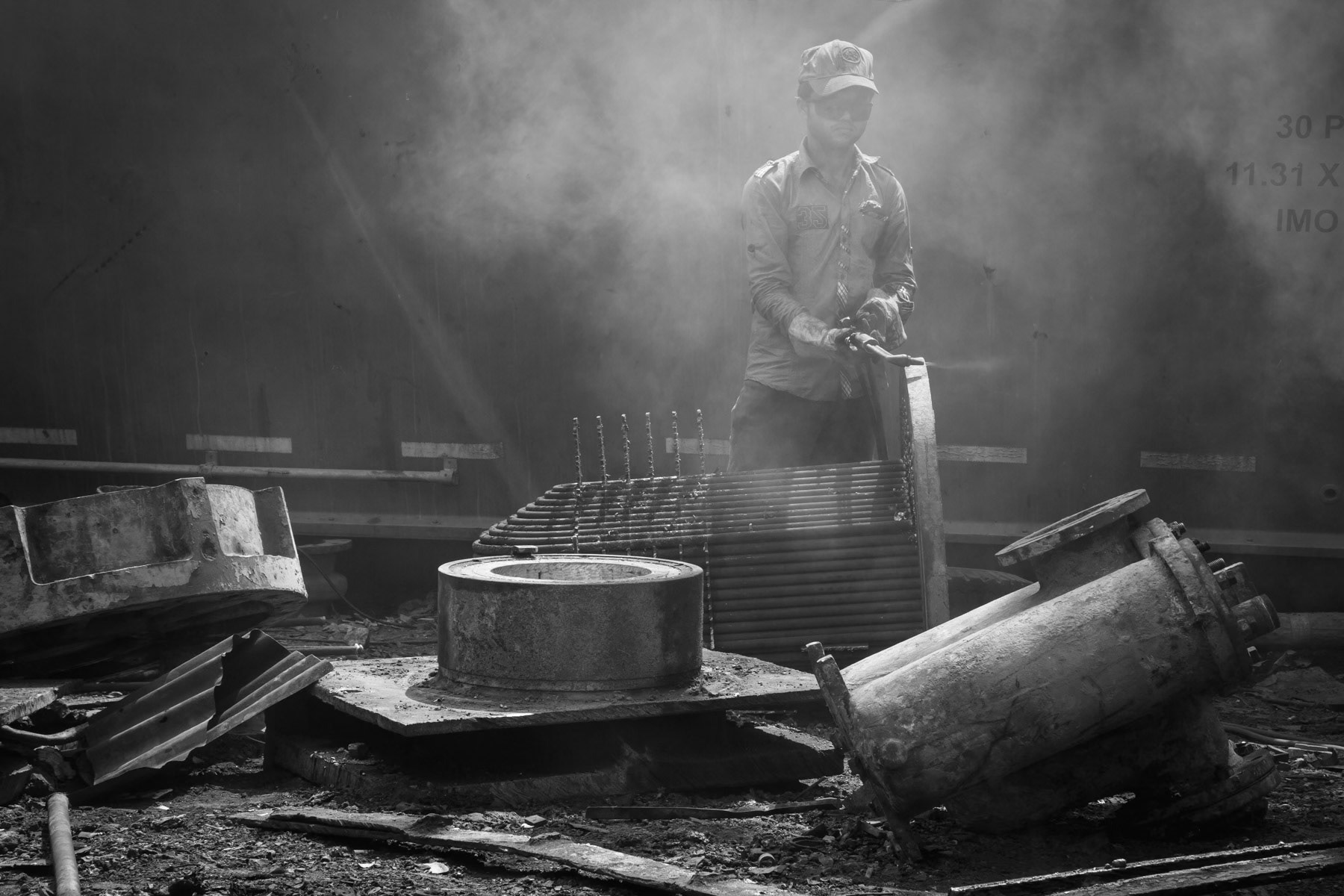
Cutting ship segments to smaller and transportable pieces, Bhatiary ship breaking yards, Bangladesh, October 2014
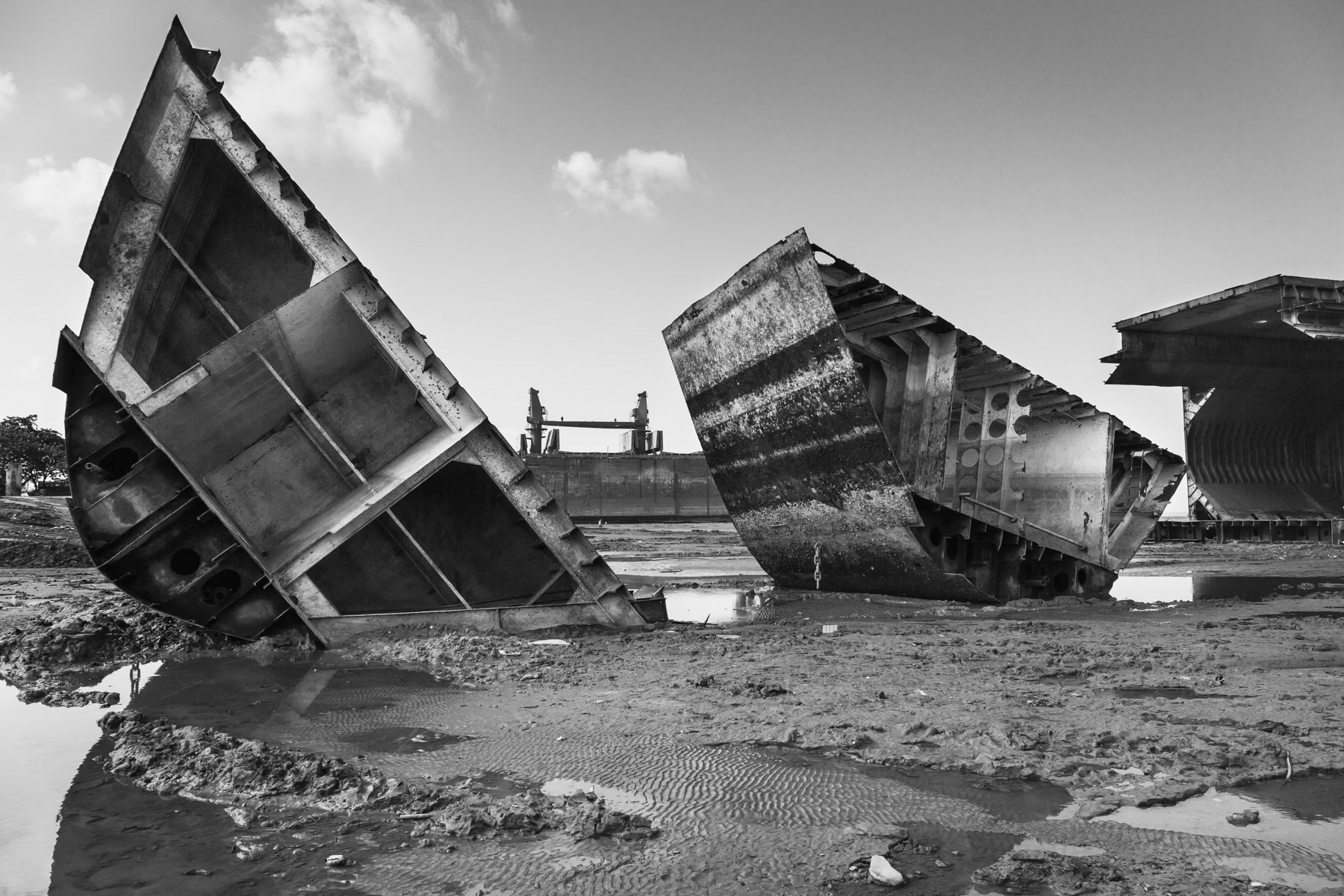
Cut-off ship parts waiting to be reduced to smaller pieces and recycled, Ship-Breaking yards in Sainbolt, Chittagong, Bangladesh, June 2015

Ship-breaking yard workers finishing their shift, Chittagong, June 2015
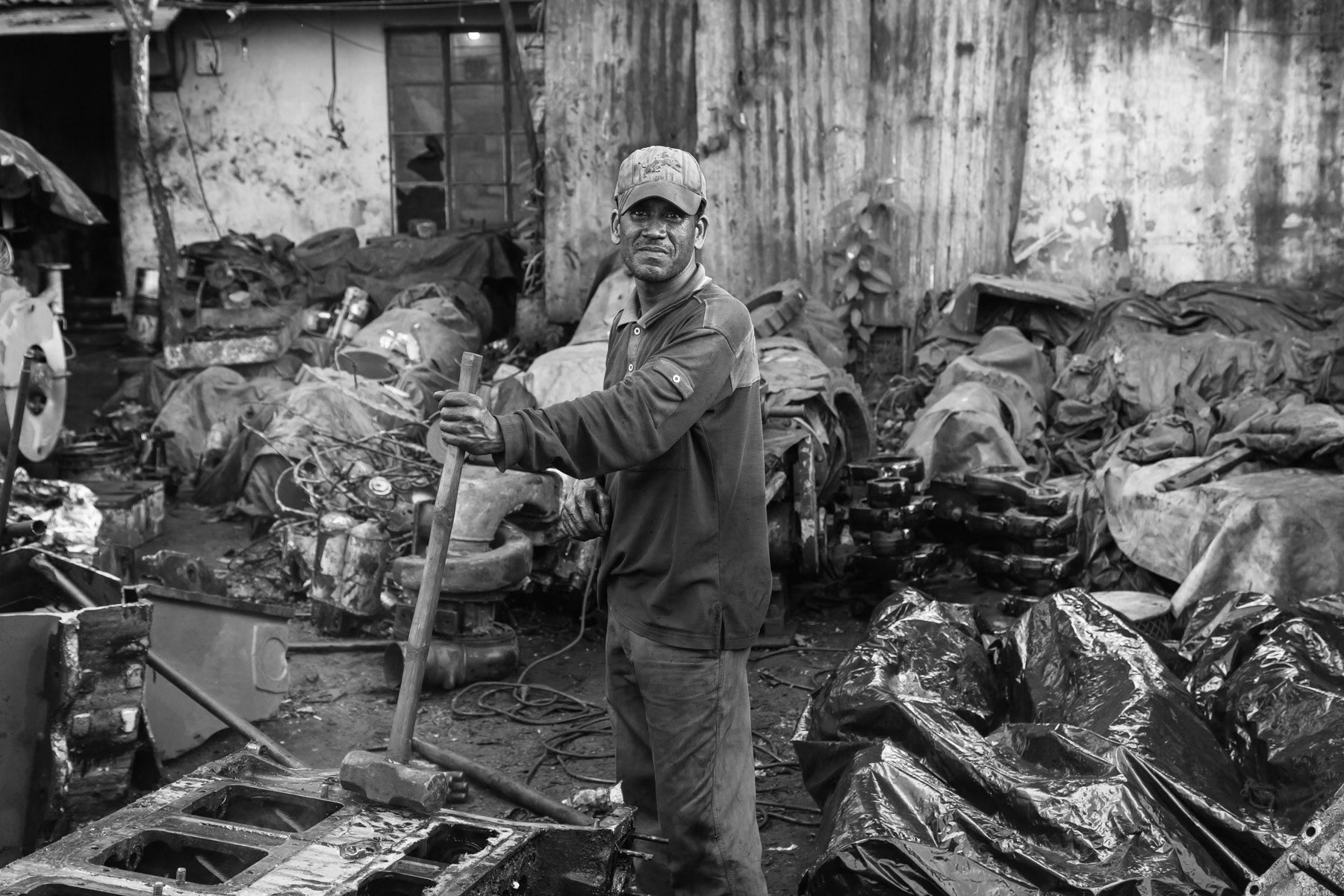
Ship engine parts being dismembered, Bhatiary ship breaking yards, Bangladesh, October 2014
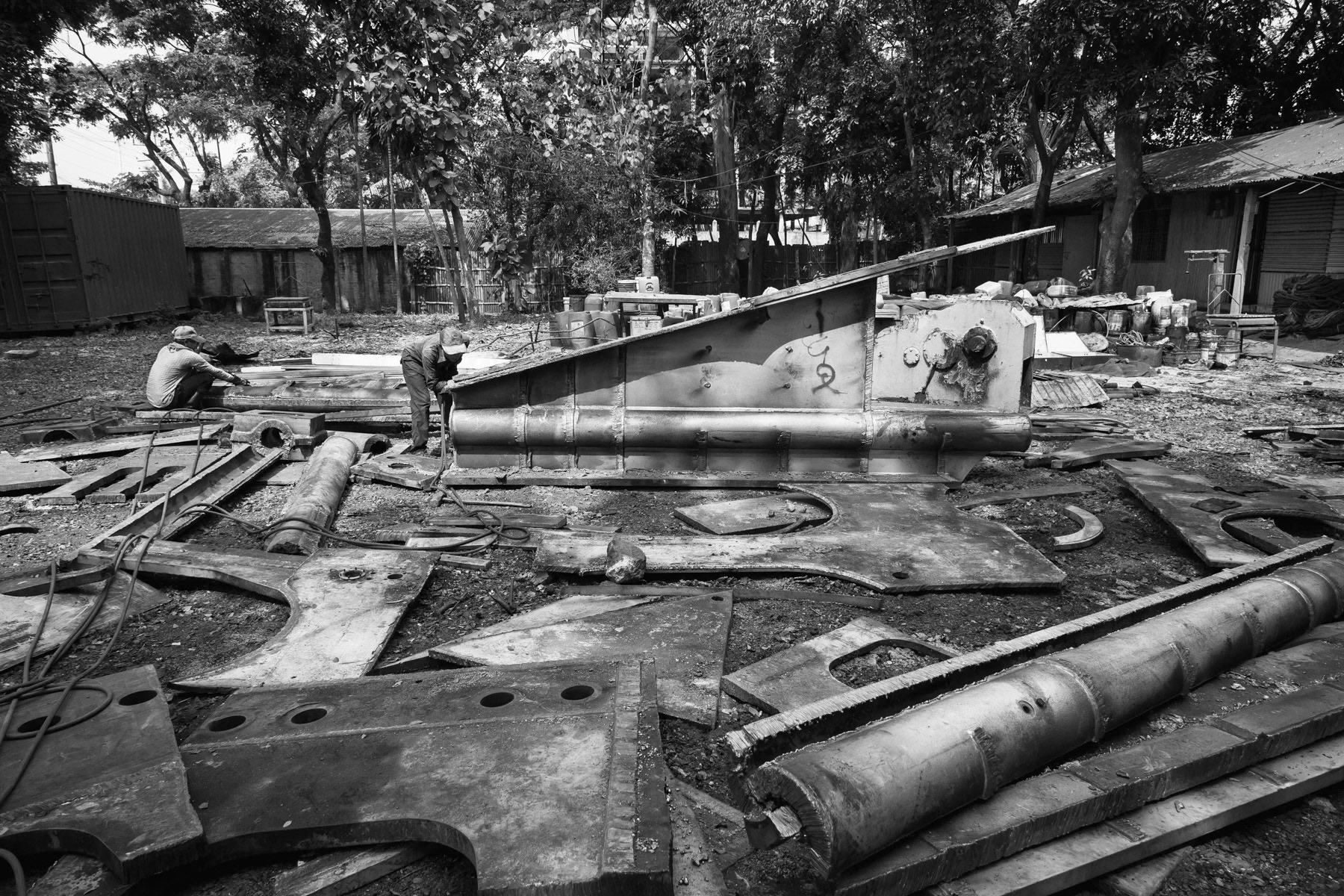
Large boat parts being reduced to transporatble pieces before being sold to the steel recycle plant. Bhatiary ship breaking yards, Bangladesh, October 2014
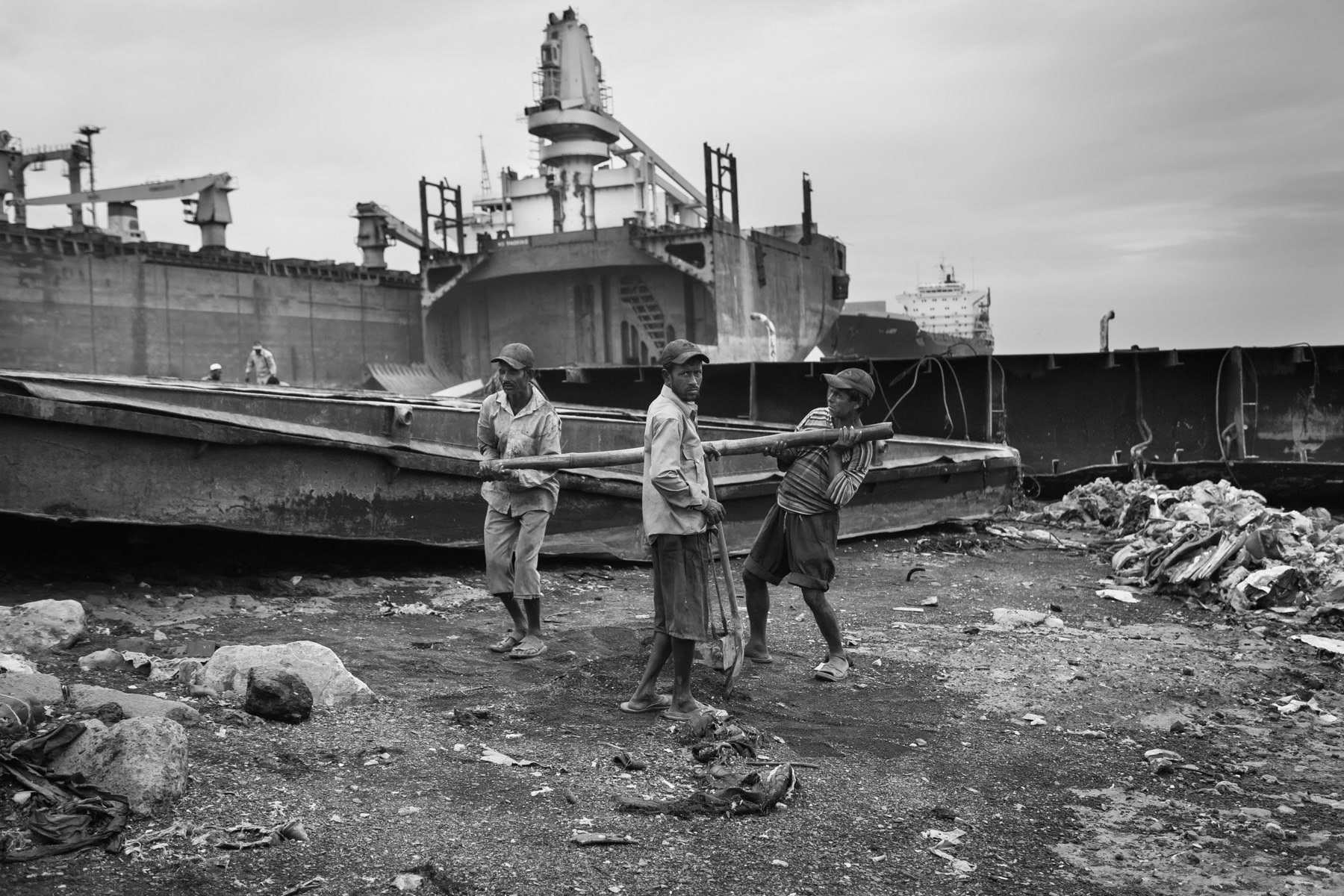
Workers carrying away ship parts. All work realted to ship dismantling is done by hand. Kumira ship breaking yards, Chittagong, Bangladesh, October 2014
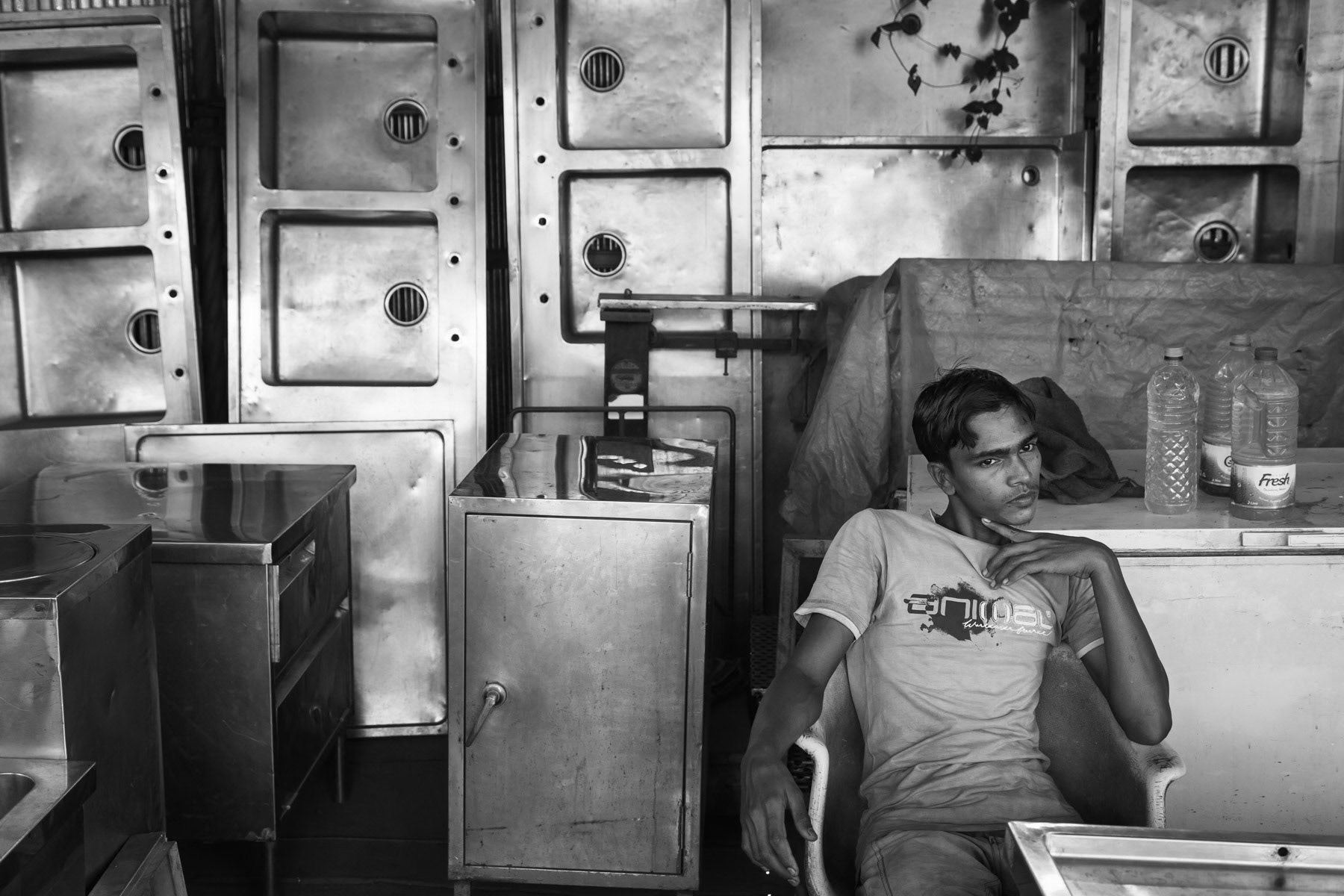
Sale of sinks dismantled from the boats of the nearby ship breaking yards, Chittagong, Bangladesh, October 2014
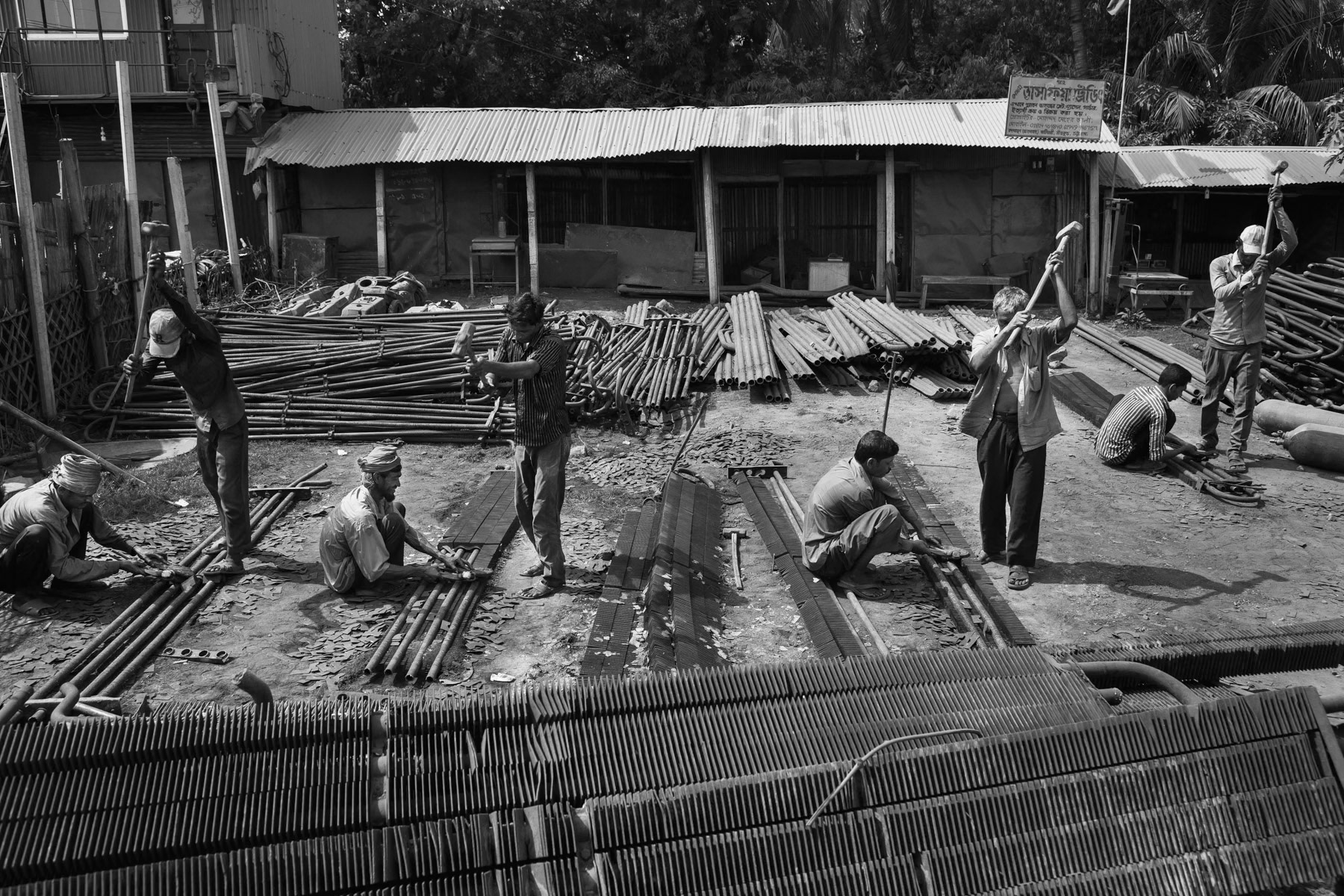
Hammering boat parts apart for further use, Bhatiary ship breaking yards, Bangladesh, October 2014
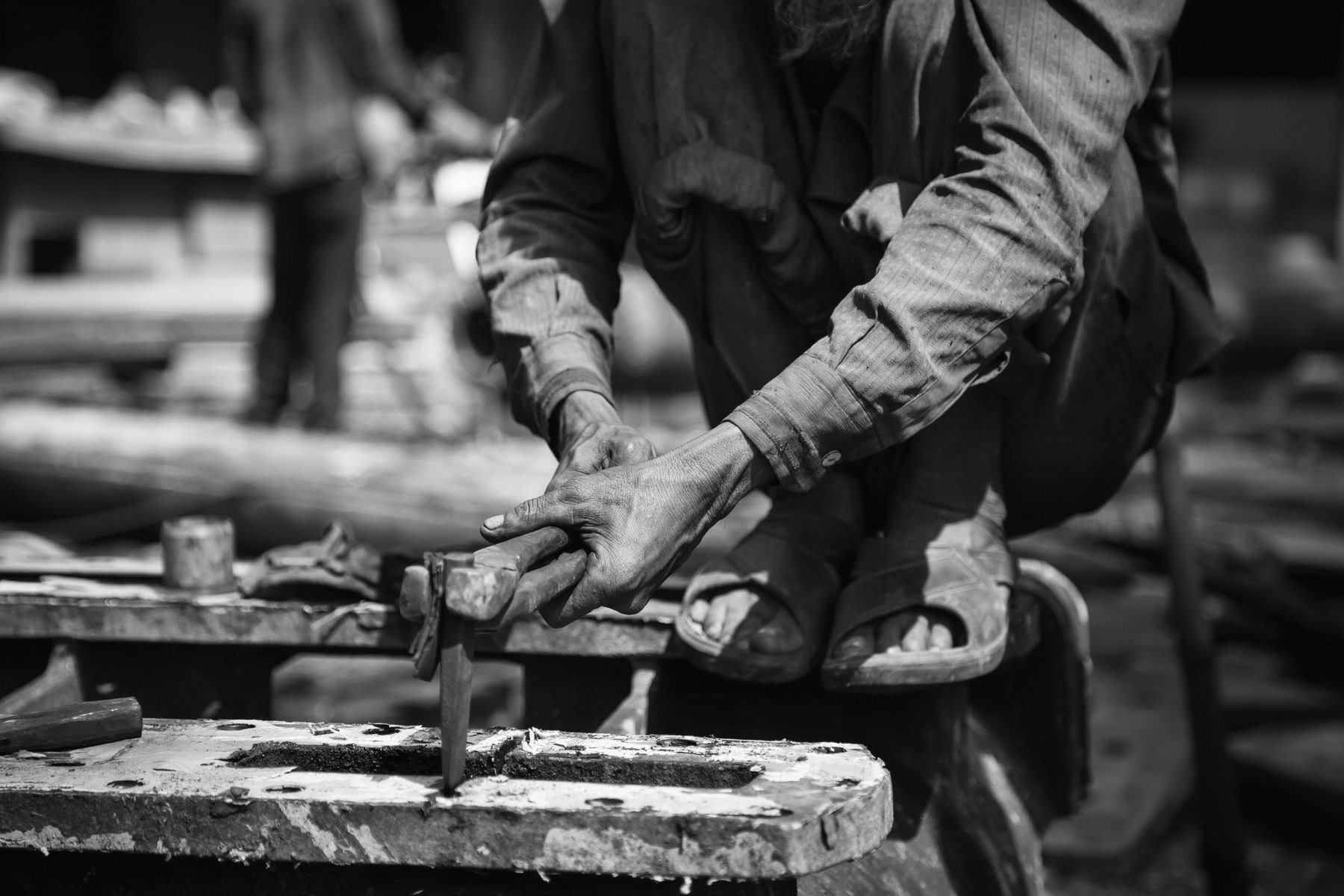
Ship part breaking, Bhatiary ship breaking yards, Bangladesh, October 2014
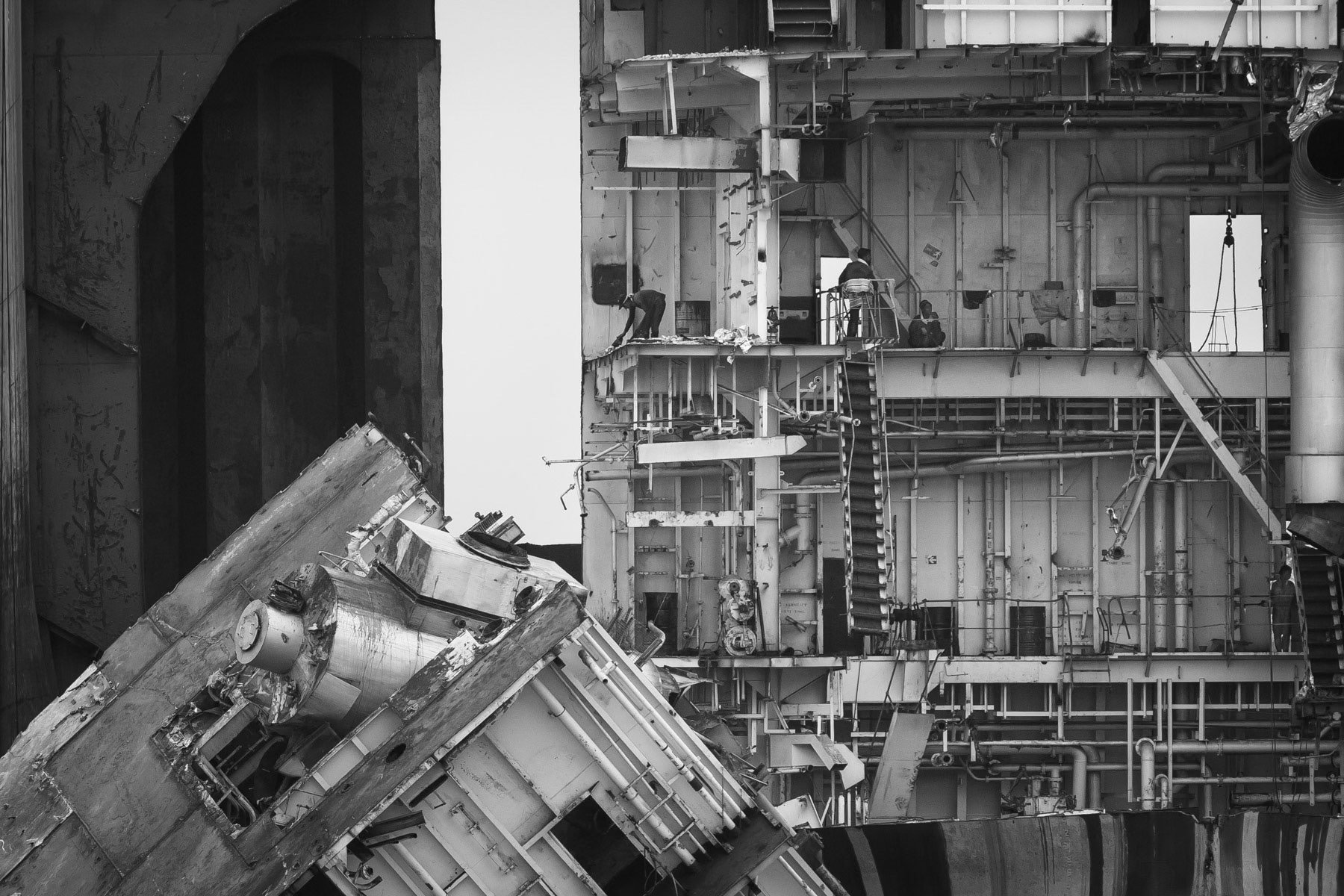
Last ship segment standing, Bhatiary ship breaking yards, Bangladesh, October 2014
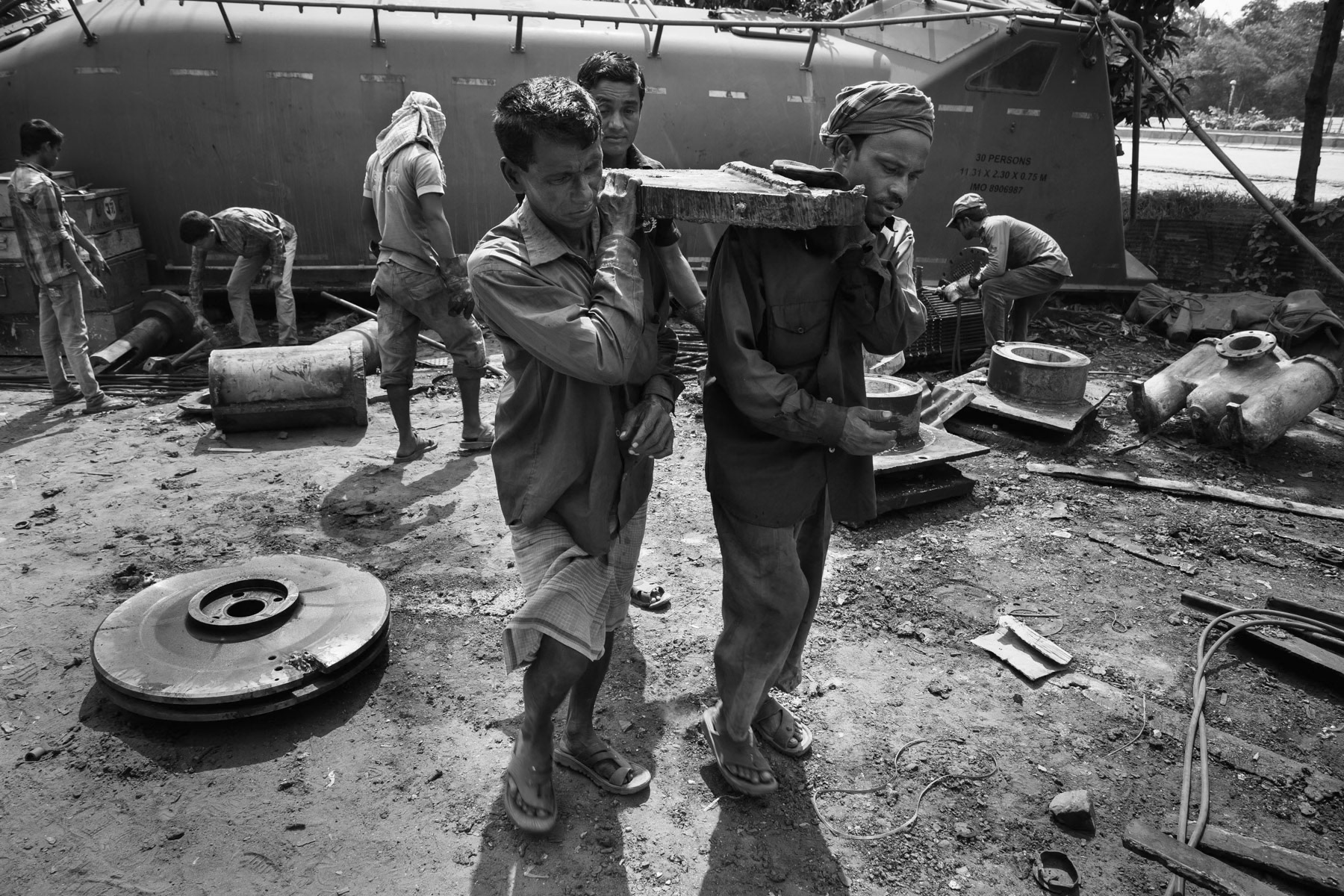
Ship part after being reduced to scrap metal, Bhatiary ship breaking yards, Bangladesh, October 2014
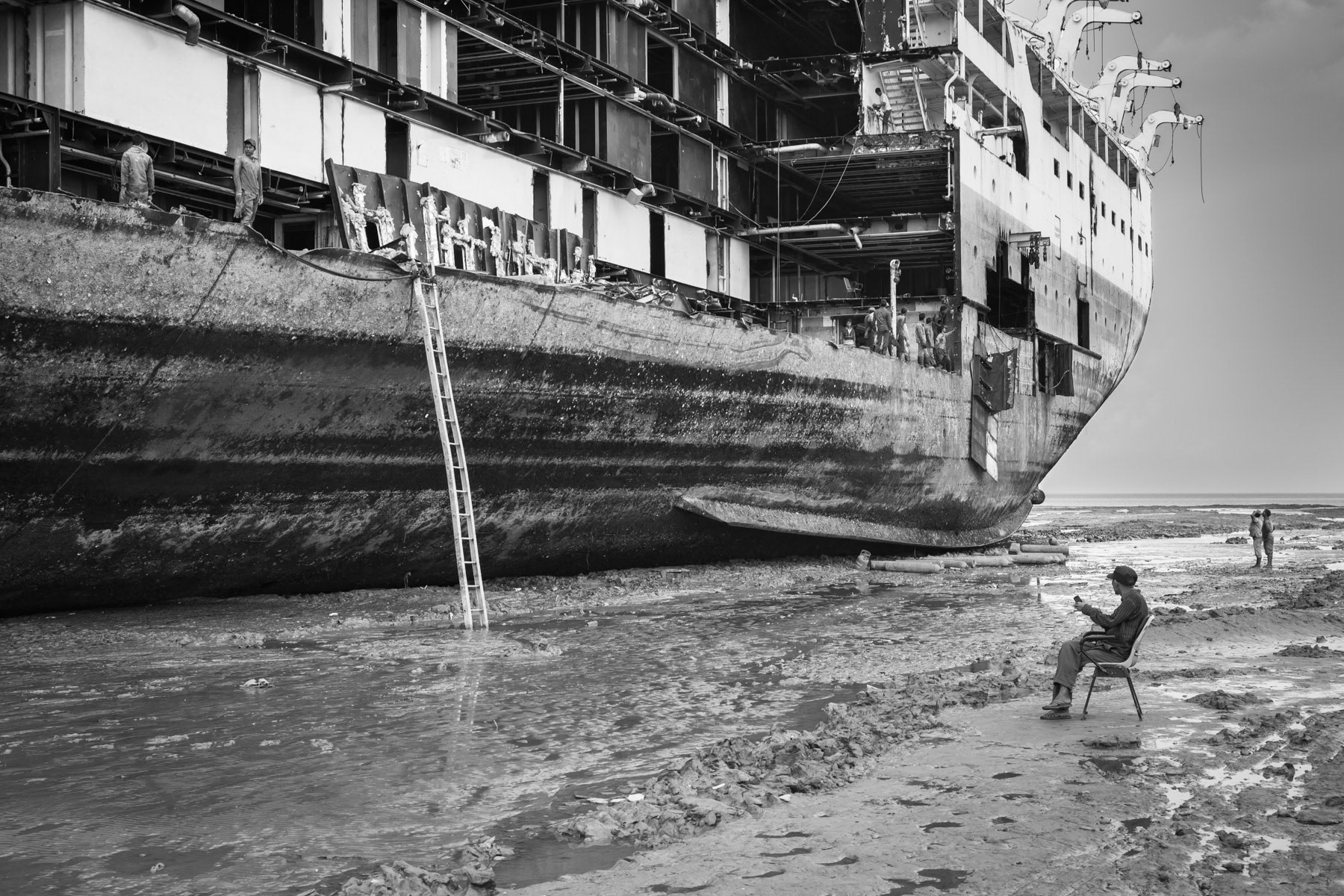
Ship-breaking yards of Chittagong, June 2015
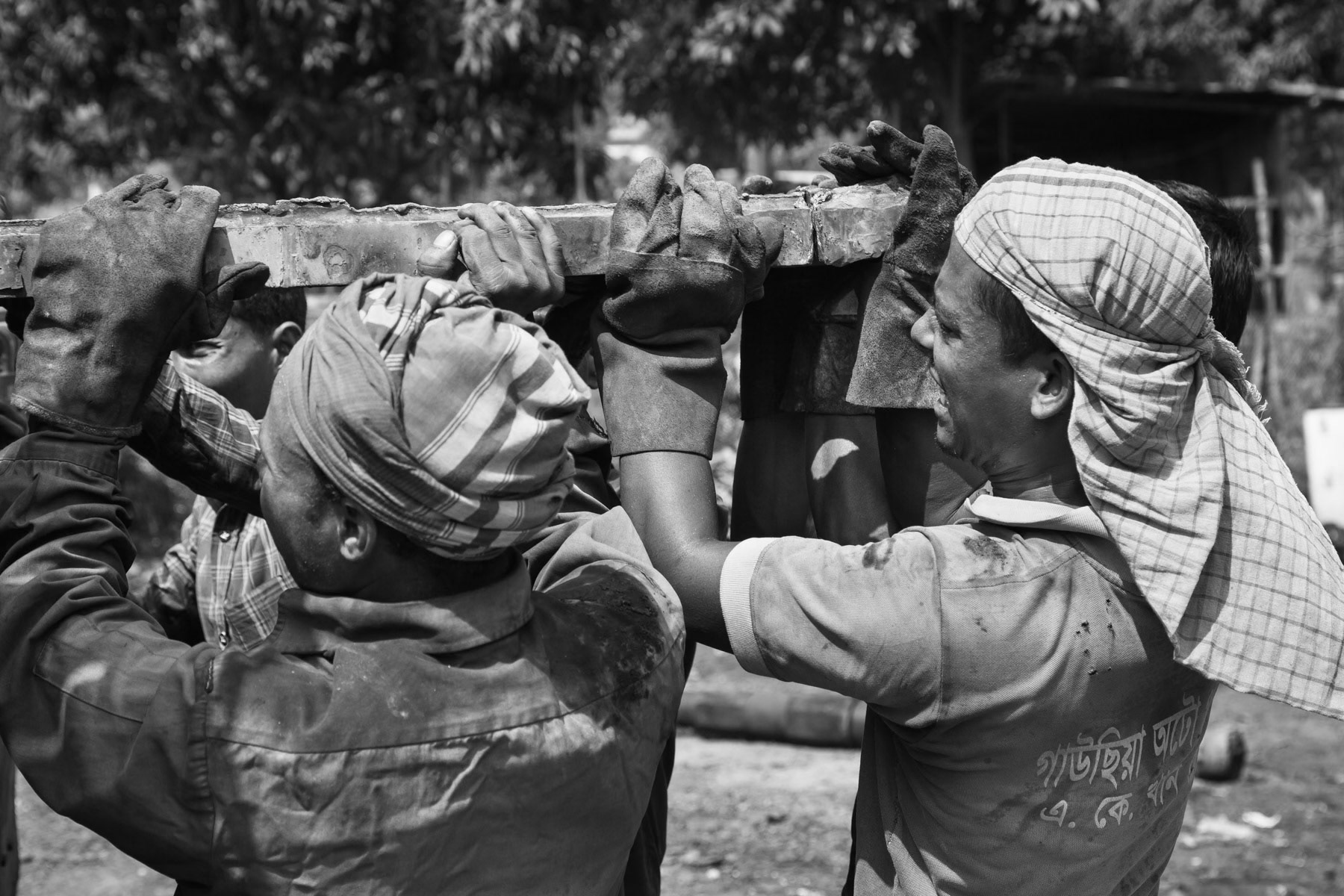
Srap steel loaded for the steel recycle plant, Bhatiary ship breaking yards, Bangladesh, October 2014
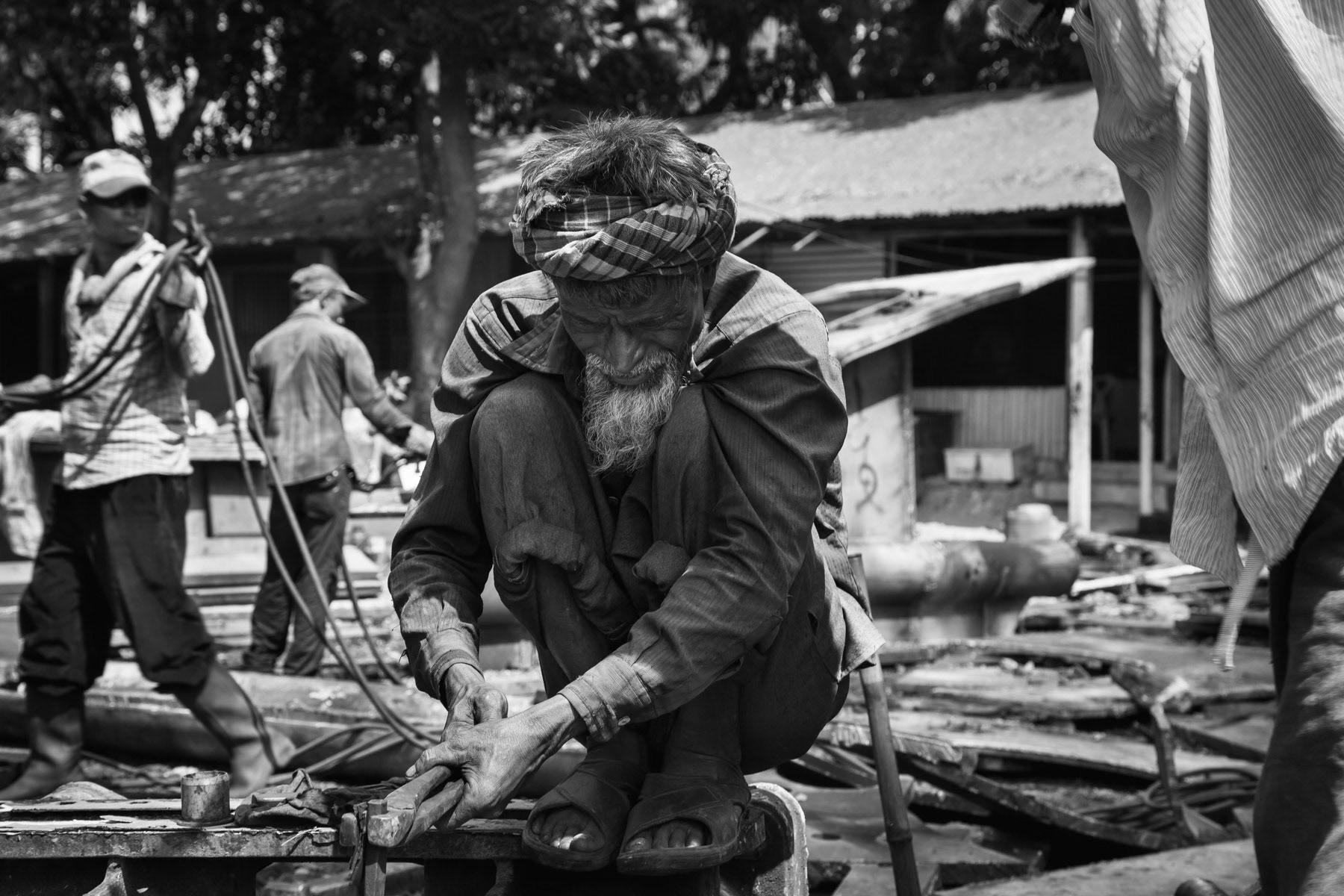
Ship breaking yard workers taking manually to pieces boat parts, Bhatiary ship breaking yards, Bangladesh, October 2014
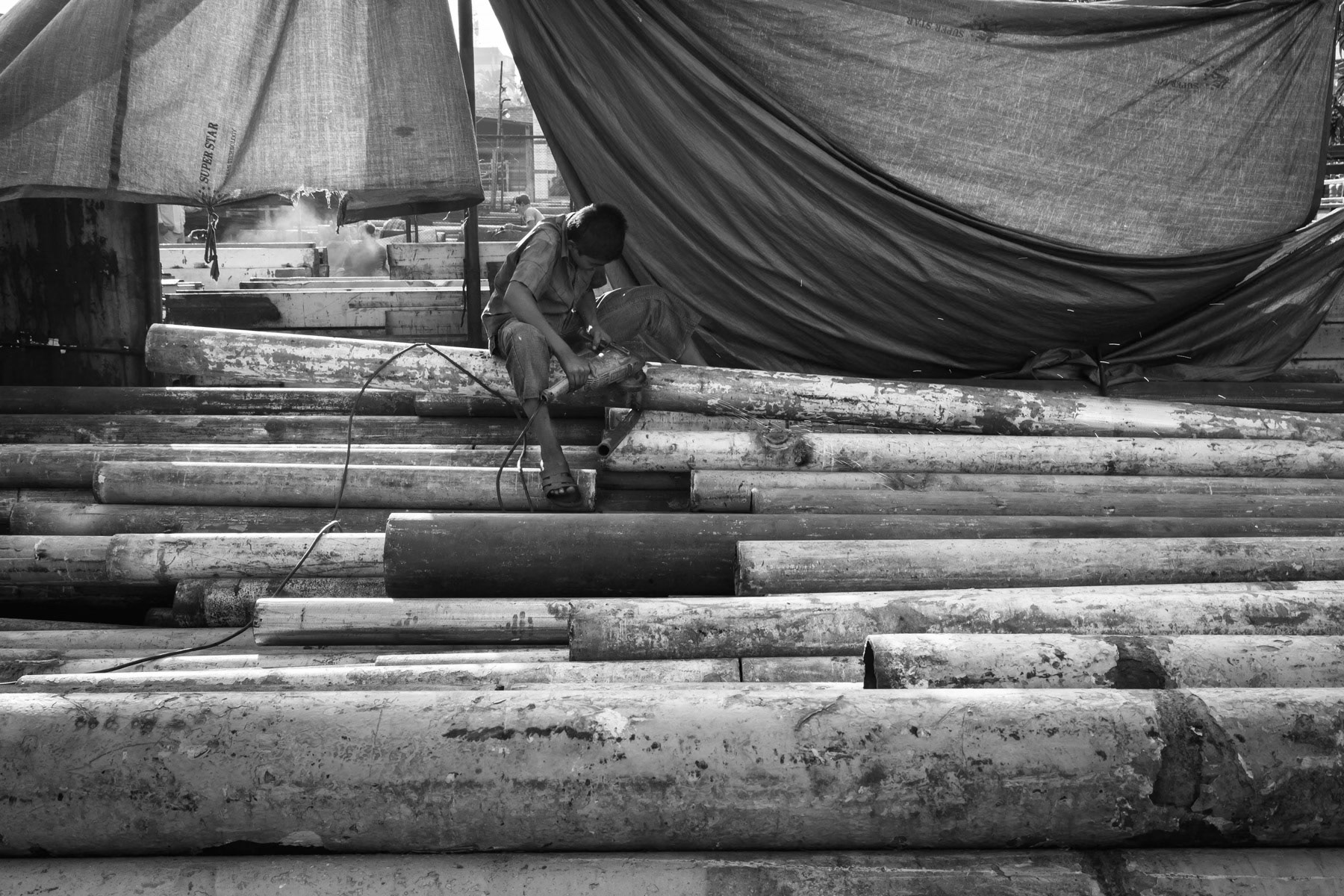
Boy cutting boat pipes, Bhatiary ship breaking yards, Bangladesh, October 2014
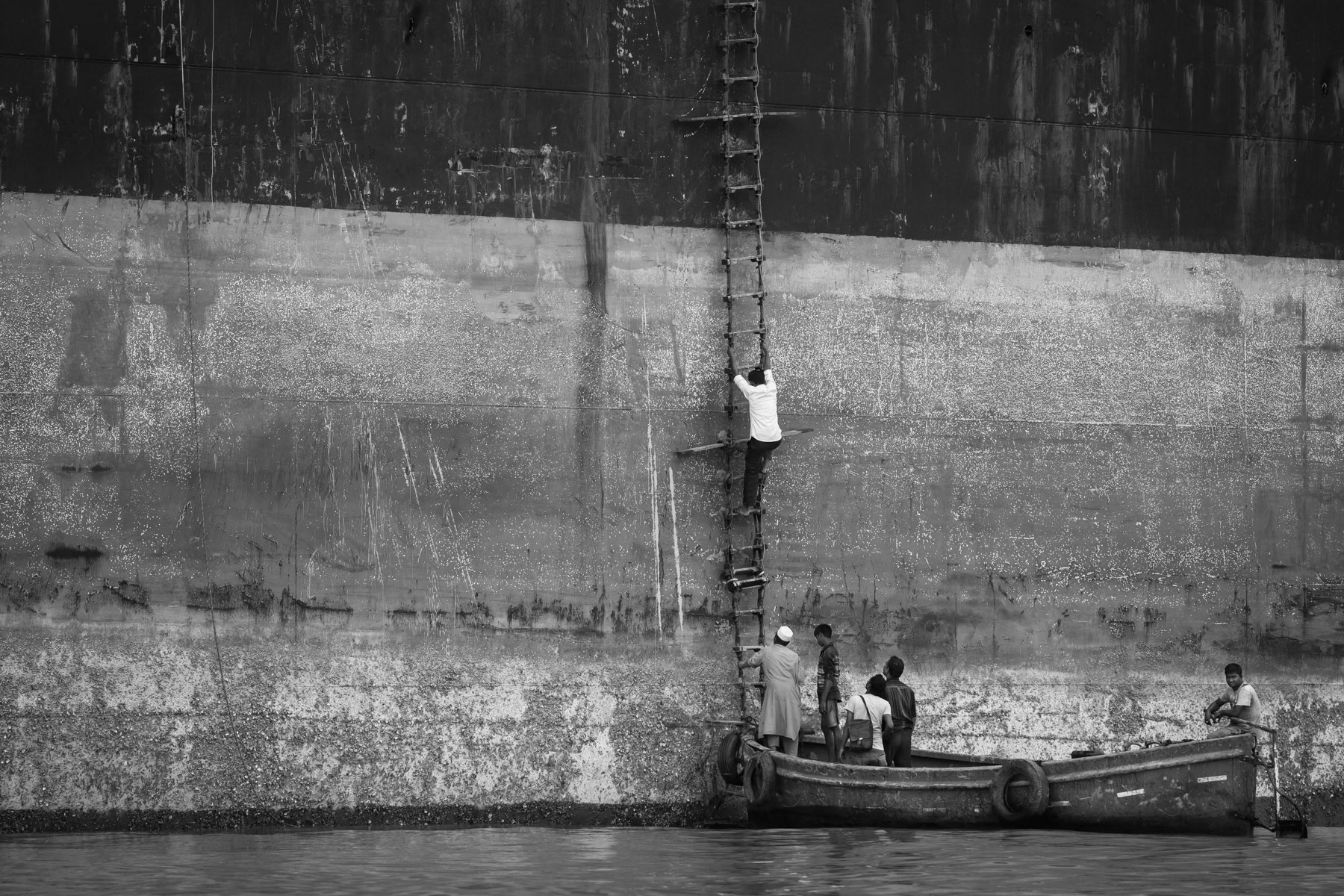
Ship cutters being brought to work, Bhatiary ship breaking yards, Bangladesh, October 2014
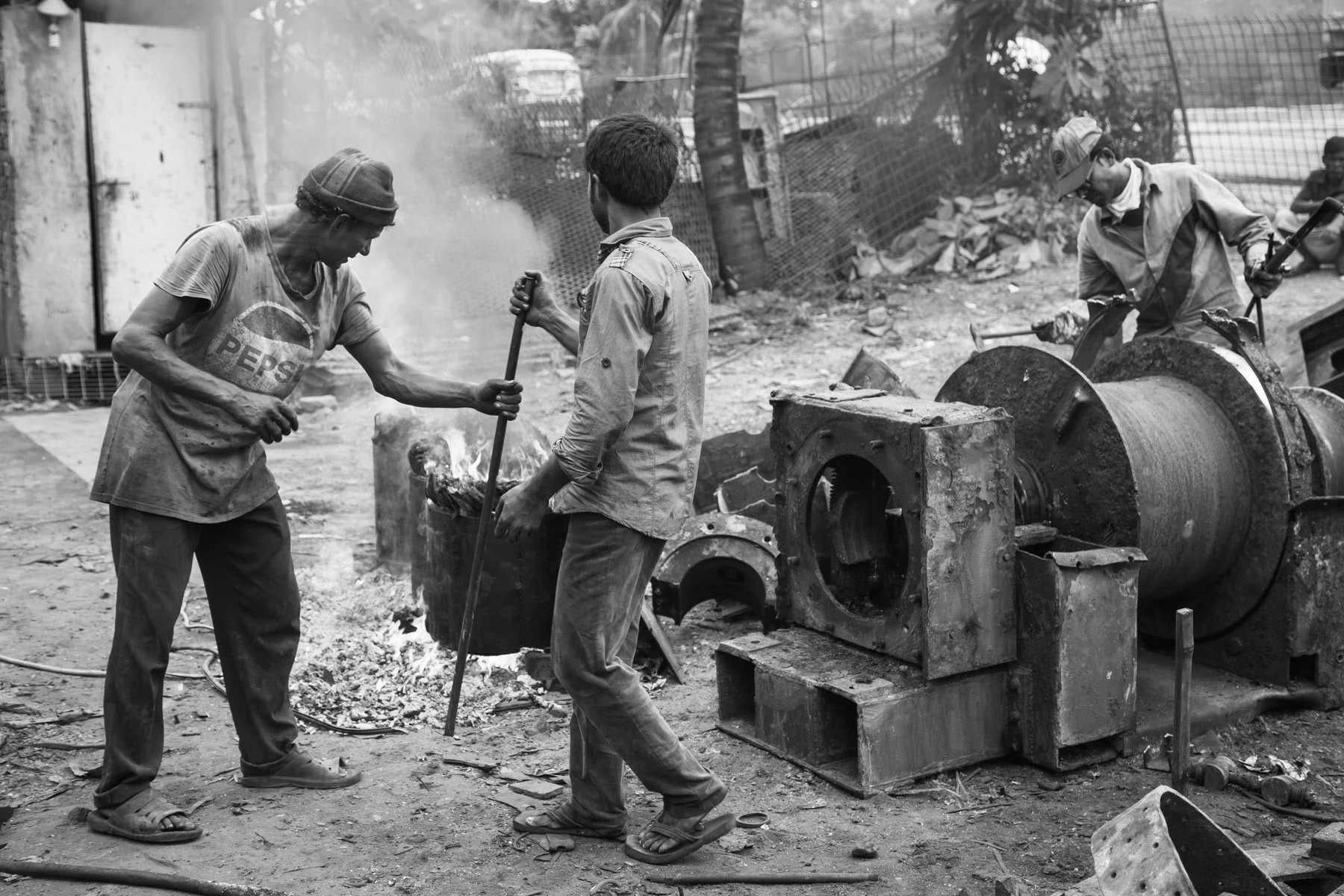
Kumira ship breaking yards, Bangladesh, October 2014
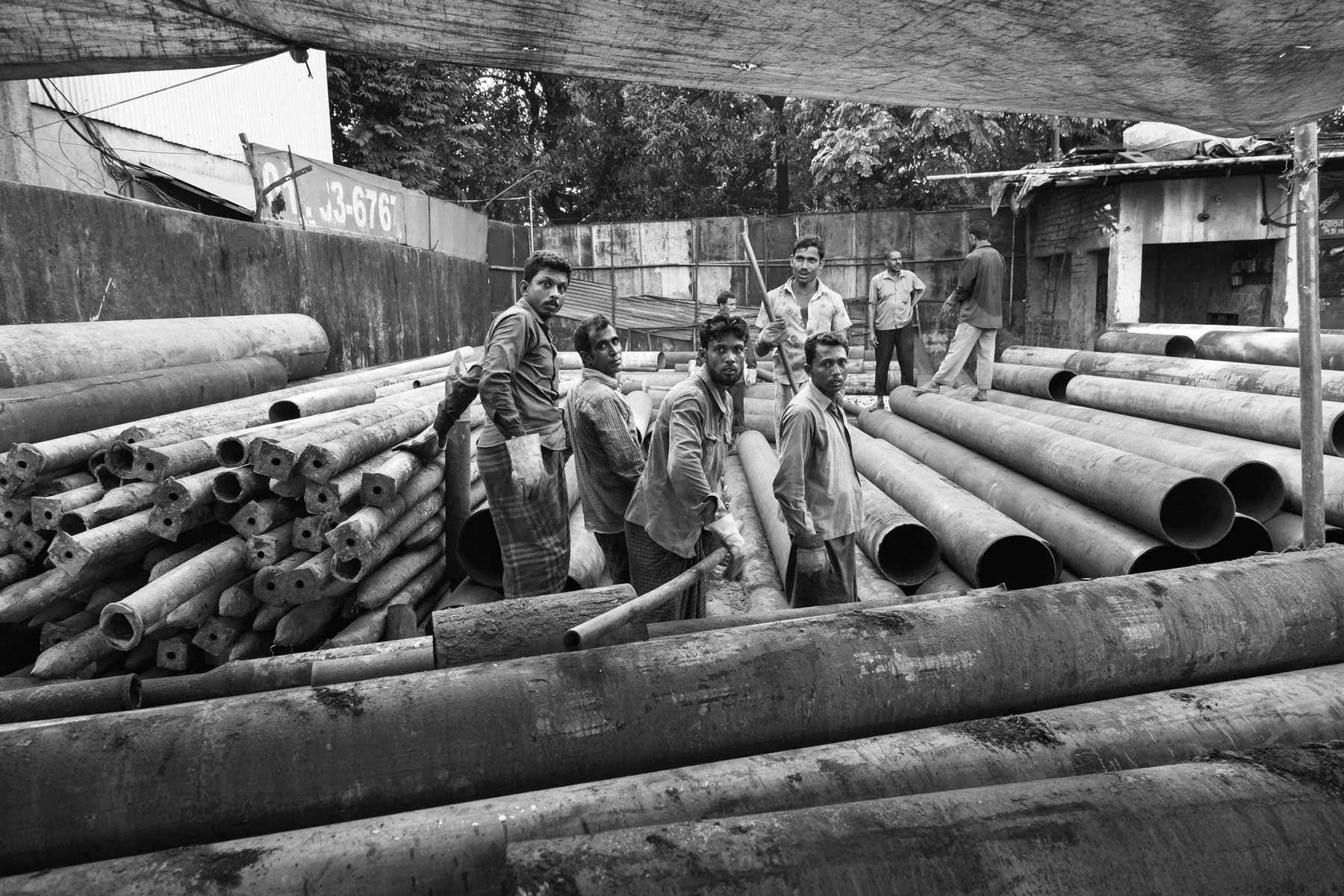
Ship pipes, Bhatiary ship breaking yards, Bangladesh, October 2014
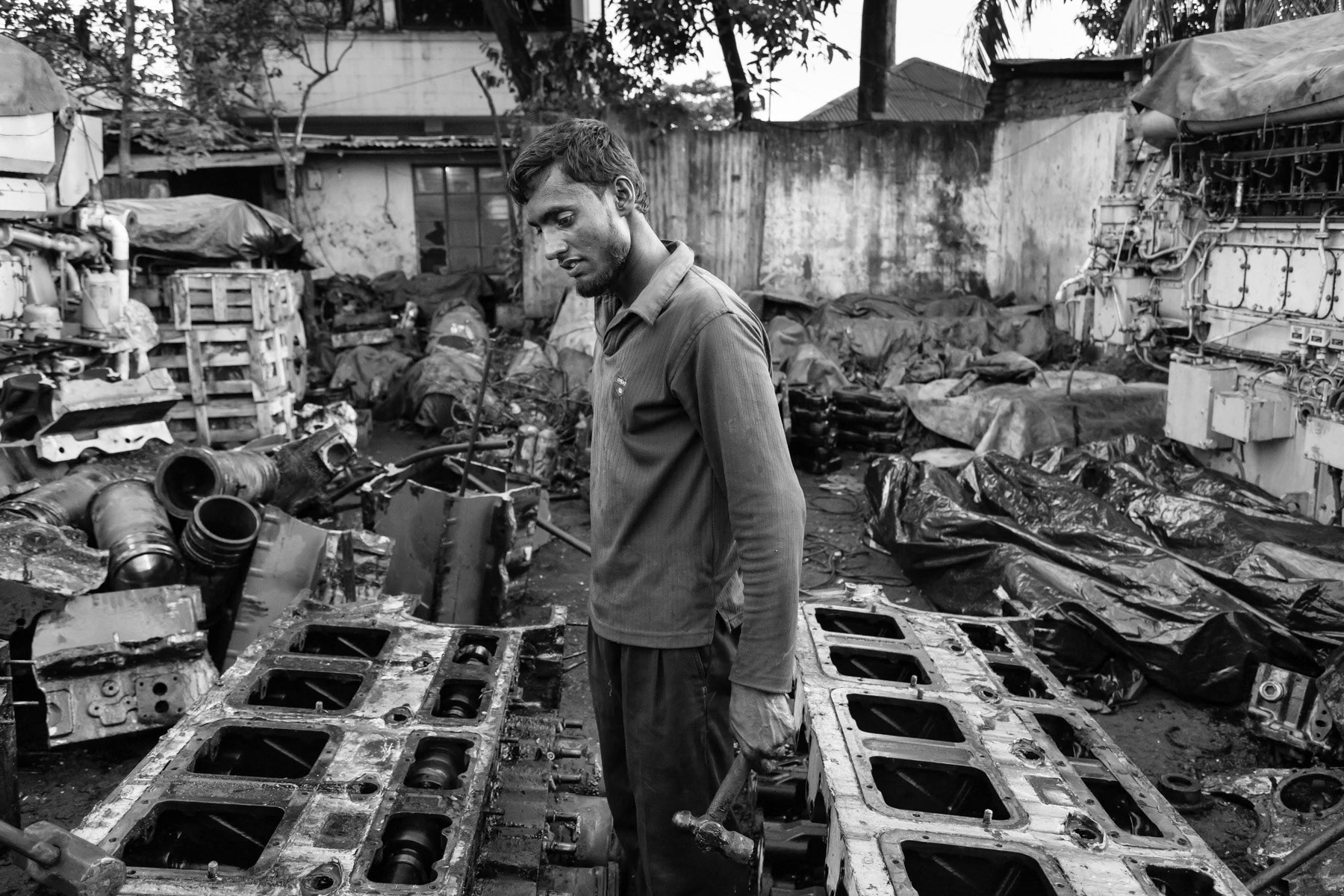
By dismantling heavy machine parts without any basic protection, workers are exposed to toxic fumes and oils. Most ship breaking yards owners have no consideration for the pollution and health hazard their activities are generating, prefering to focus on maximum profit while remaining cheap and attractive as a ship dumping destination. Bhatiary ship breaking yards, Bangladesh, October 2014
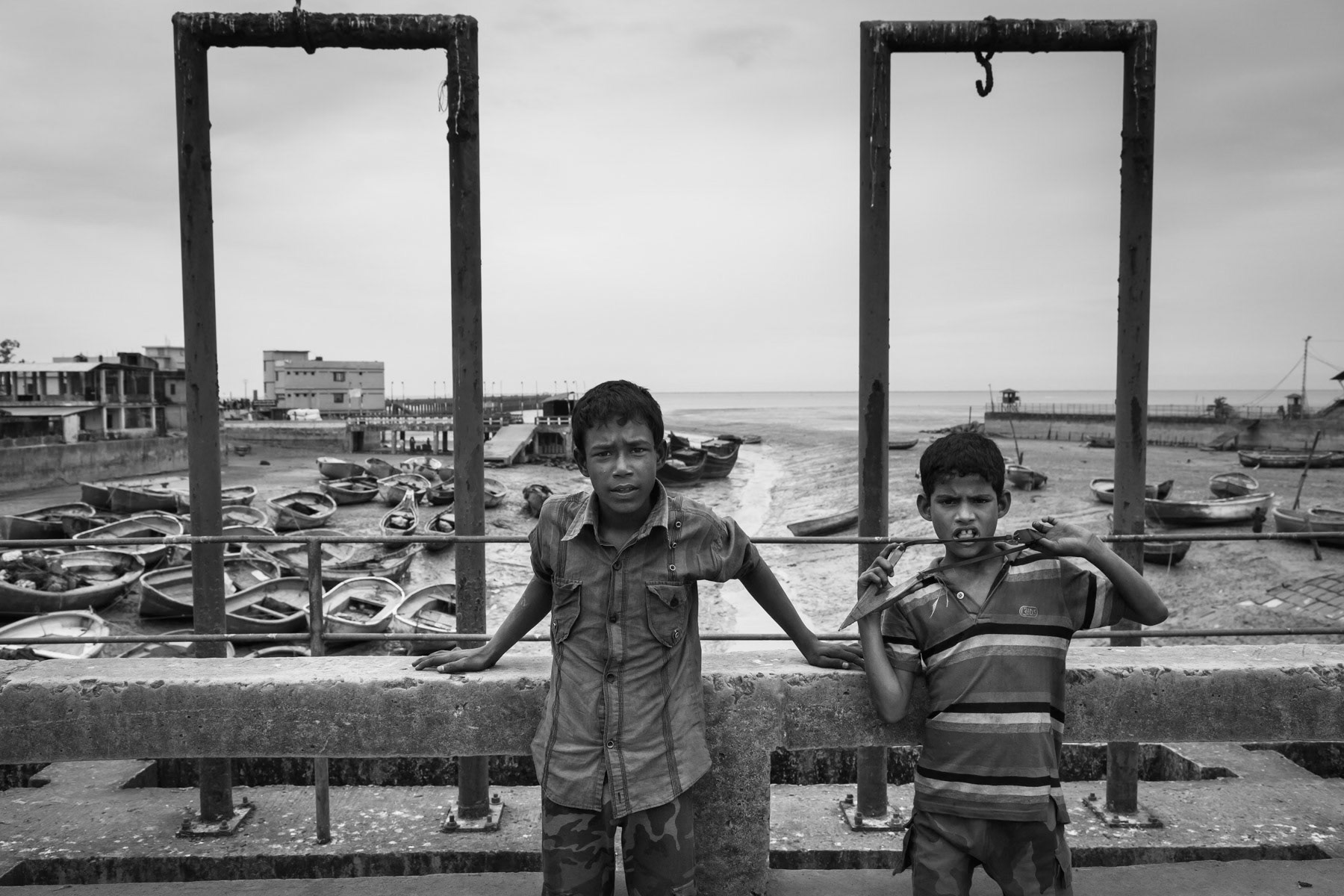
Kumira, a former fishing village nowadays a main spot for ship breaking yards, Chittagong, Bangladesh, October 2014
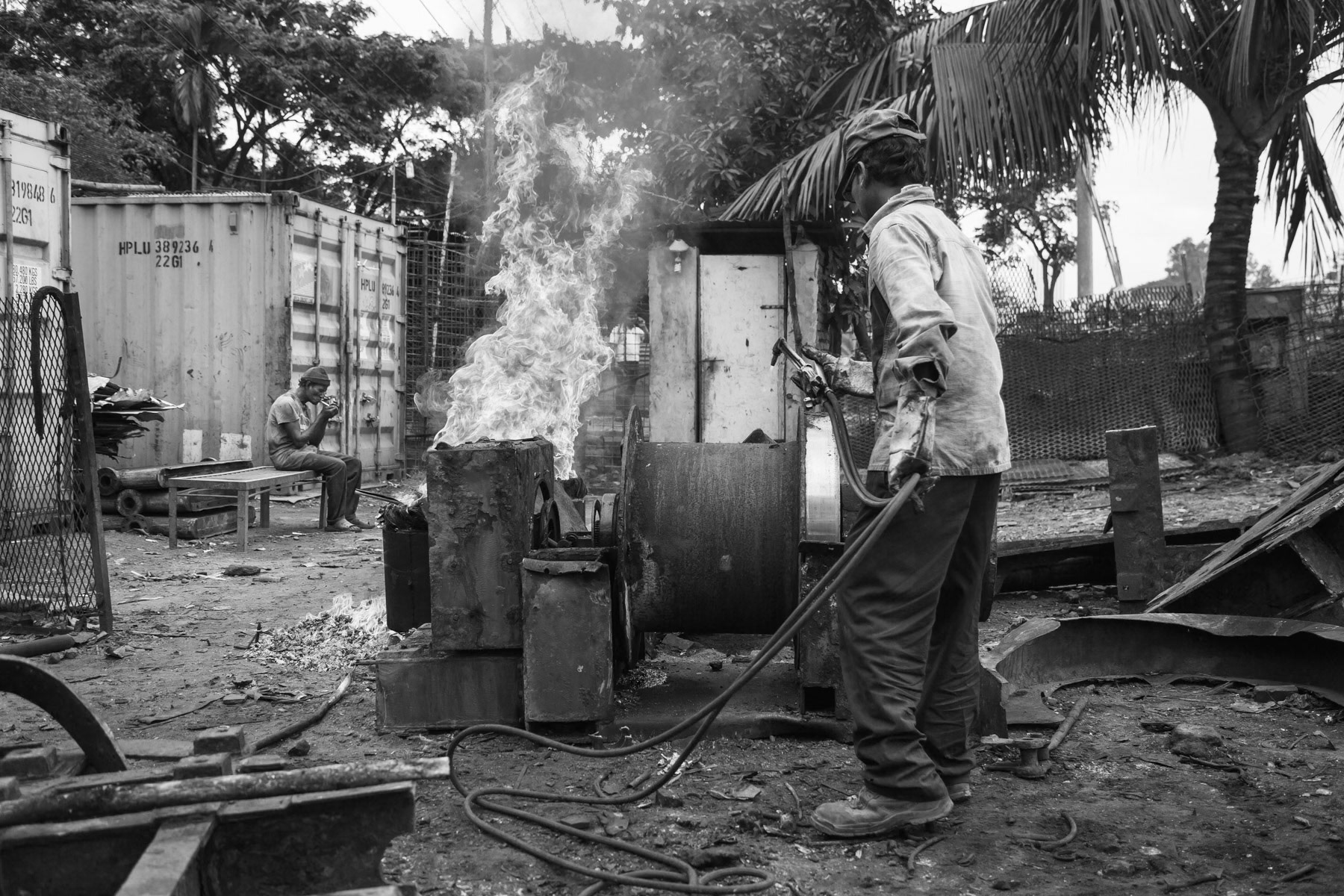
Cutting heavy ship parts and burning plastic of electrical cables. Kumira ship breaking yards, Bangladesh, October 2014

Work accident victim while working on the ship breaking yards. Repairing fishing nets to survive. Kumira, Bangladesh, October 2014
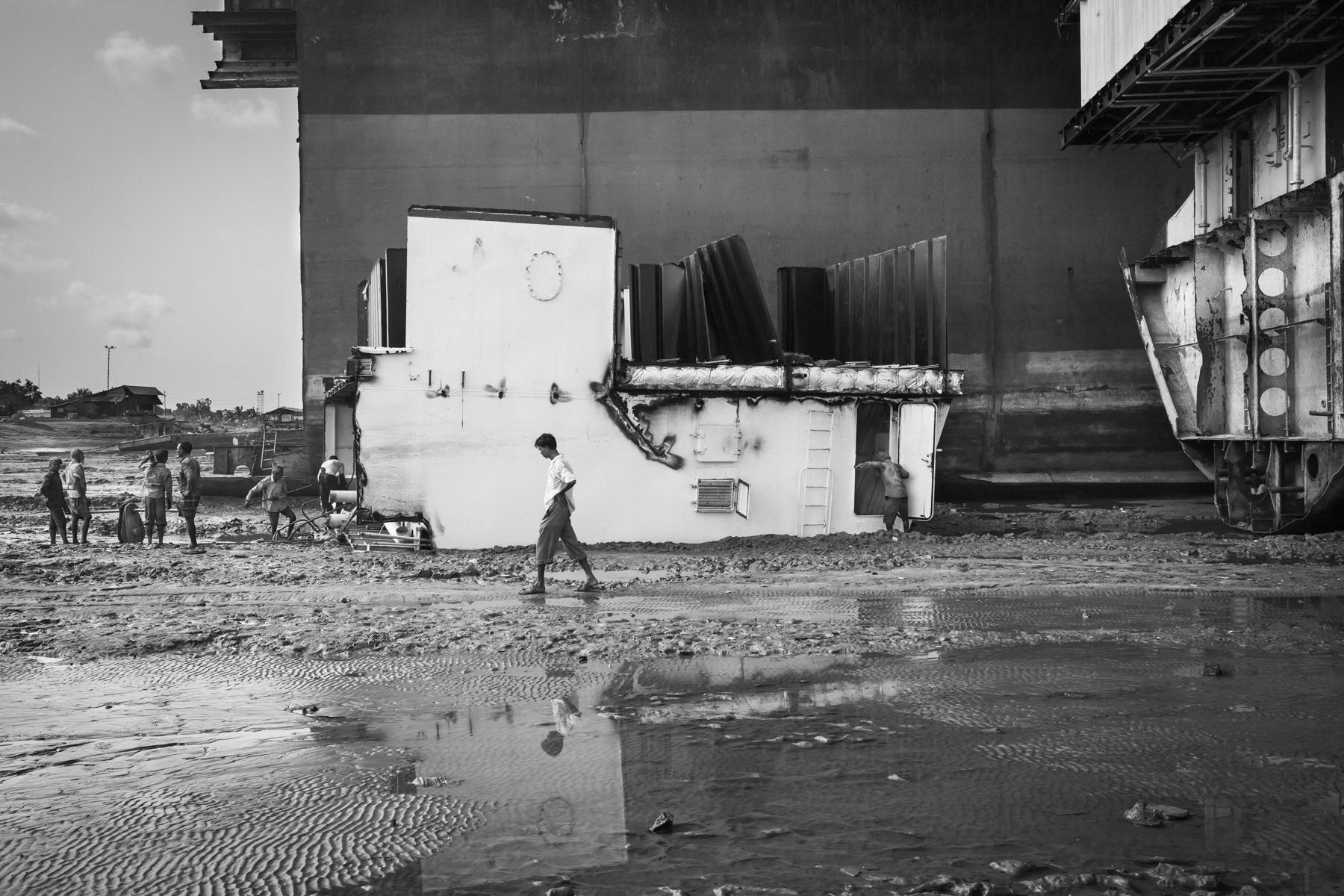
Sliced up vessels, Chittagong ship-breaking yards, Bangladesh, June 2015

Minor employed as a ship cutter assistant despite child labour regulations, ship-breaking yards of Bhatiary in Chittagong, Bangladesh, December 2015
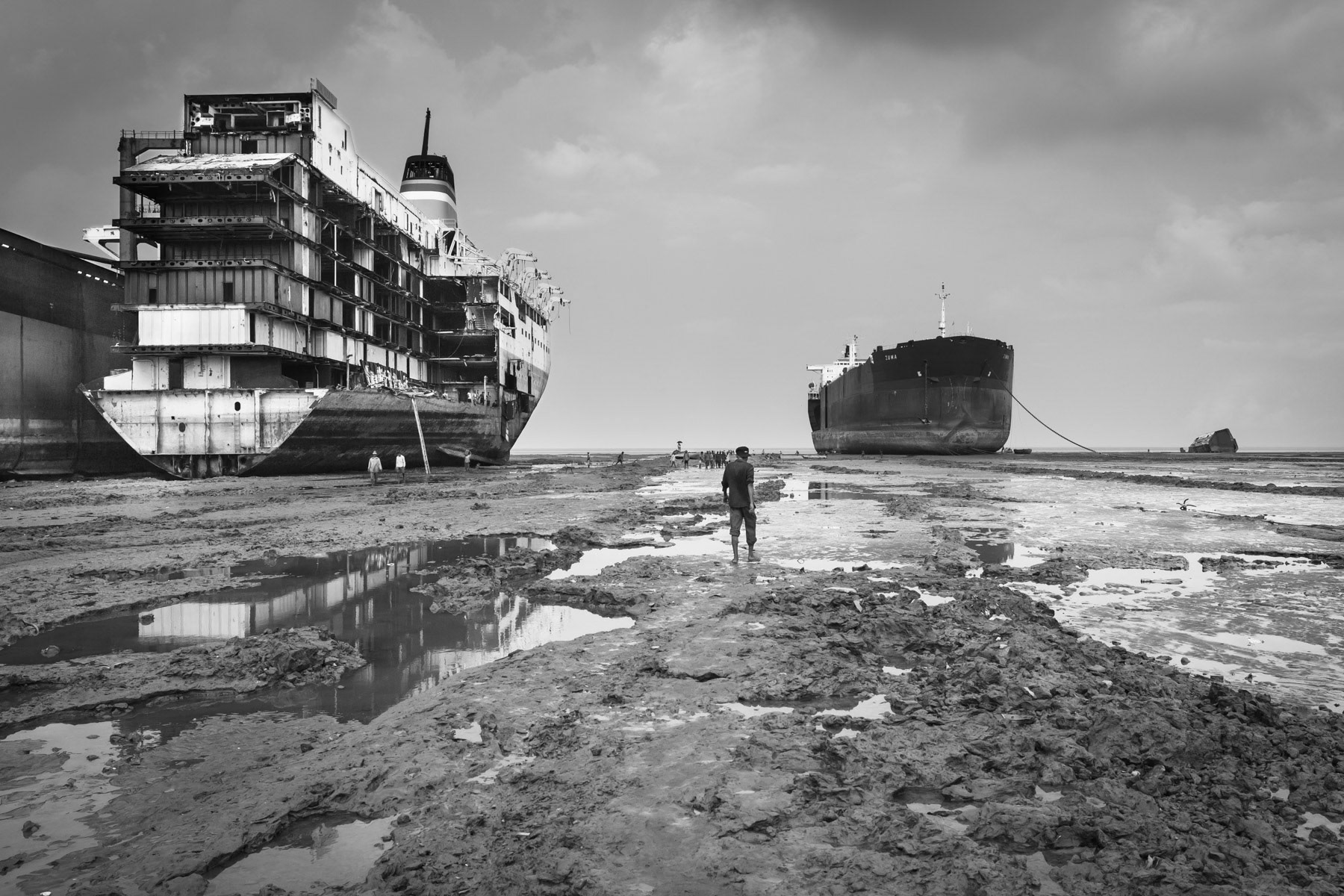
Beached vessels being dismanteled, Chittagong ship-breaking yards, Bangladesh, June 2015
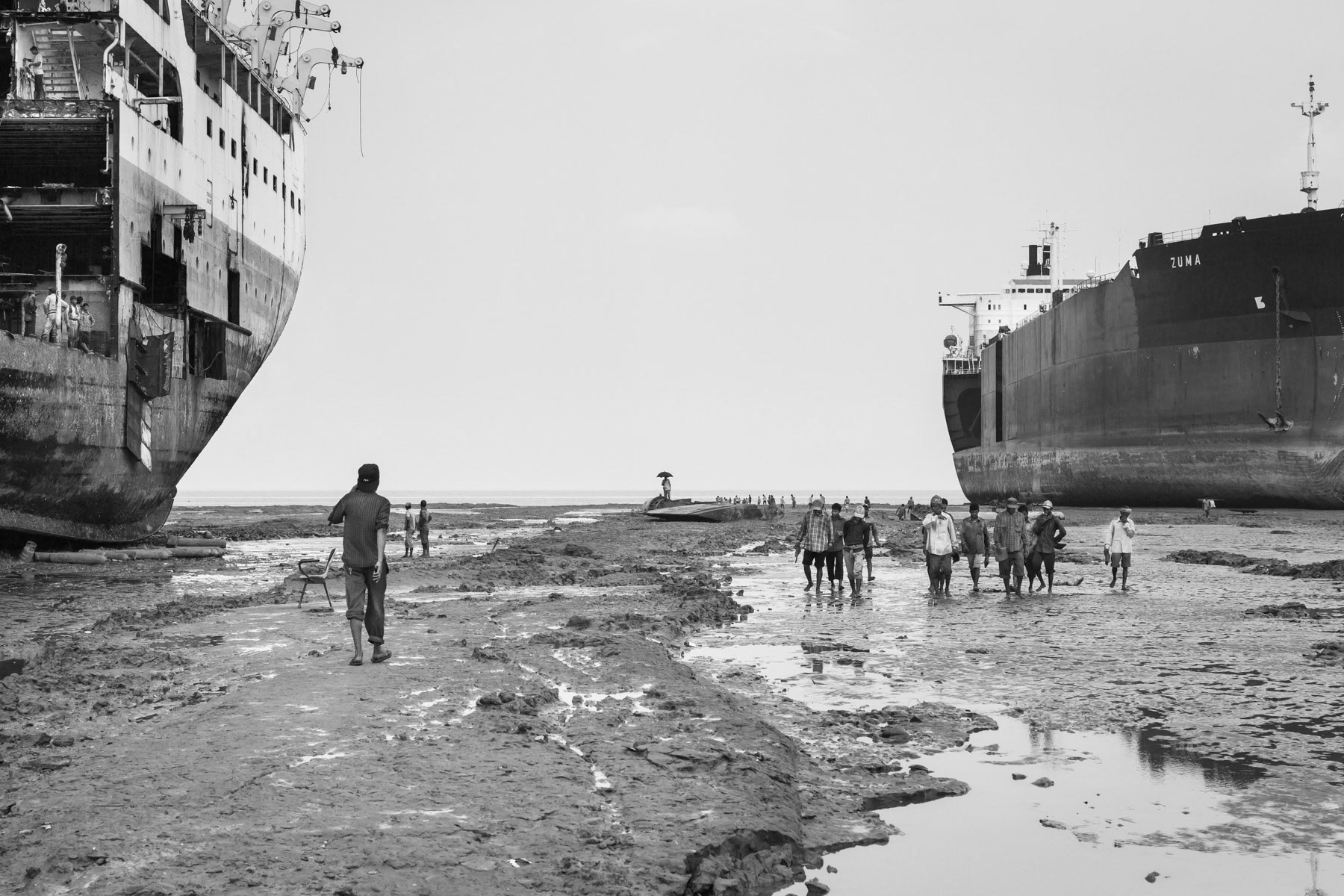
Ship-breaking yard workers finishing their shift, Chittagong, June 2015

Ship breaking workers at home, Bhatiary, Chittagong, Bangladesh, October 2014
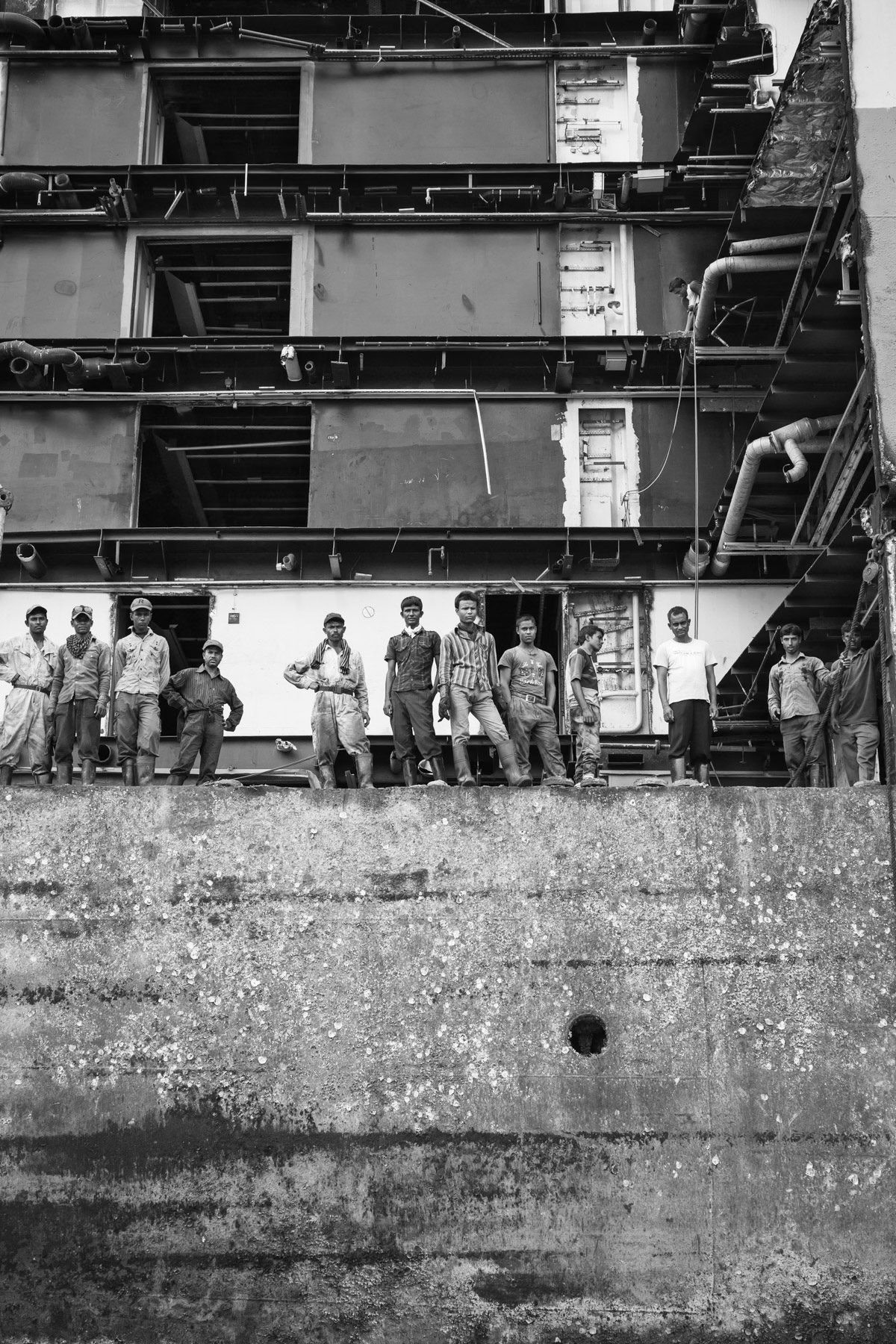
Ship-breaking yard workers, Chittagong, Bangladesh, June 2015
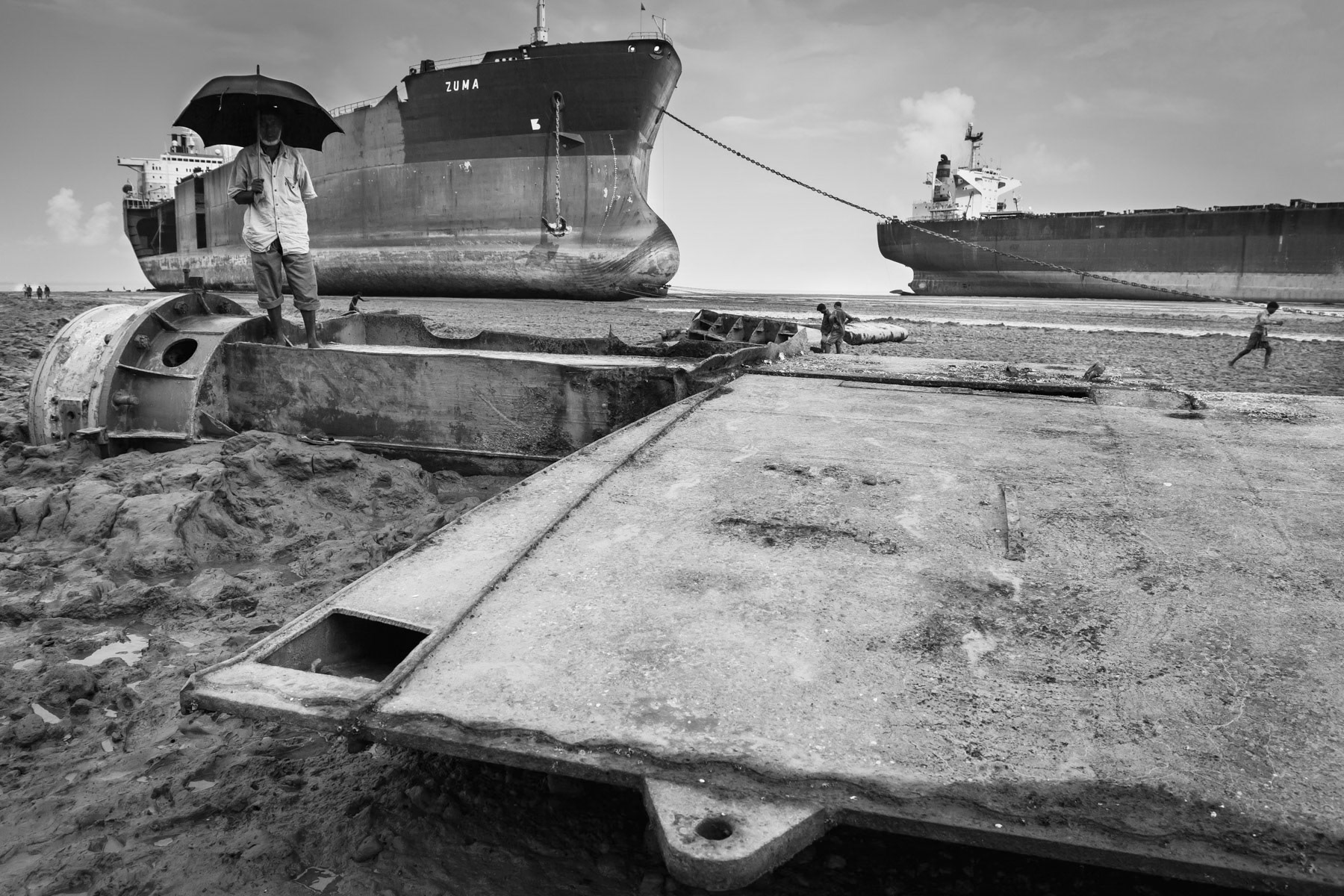
Ship-breaking yards of Chittagong, June 2015

Once the ships are dismantled in large pieces, they will further be cut down by hand to small useable pieces in the adjacent ship-breaking yards. Ship-breaking yard workers, Chittagong, Bangladesh, June 2015
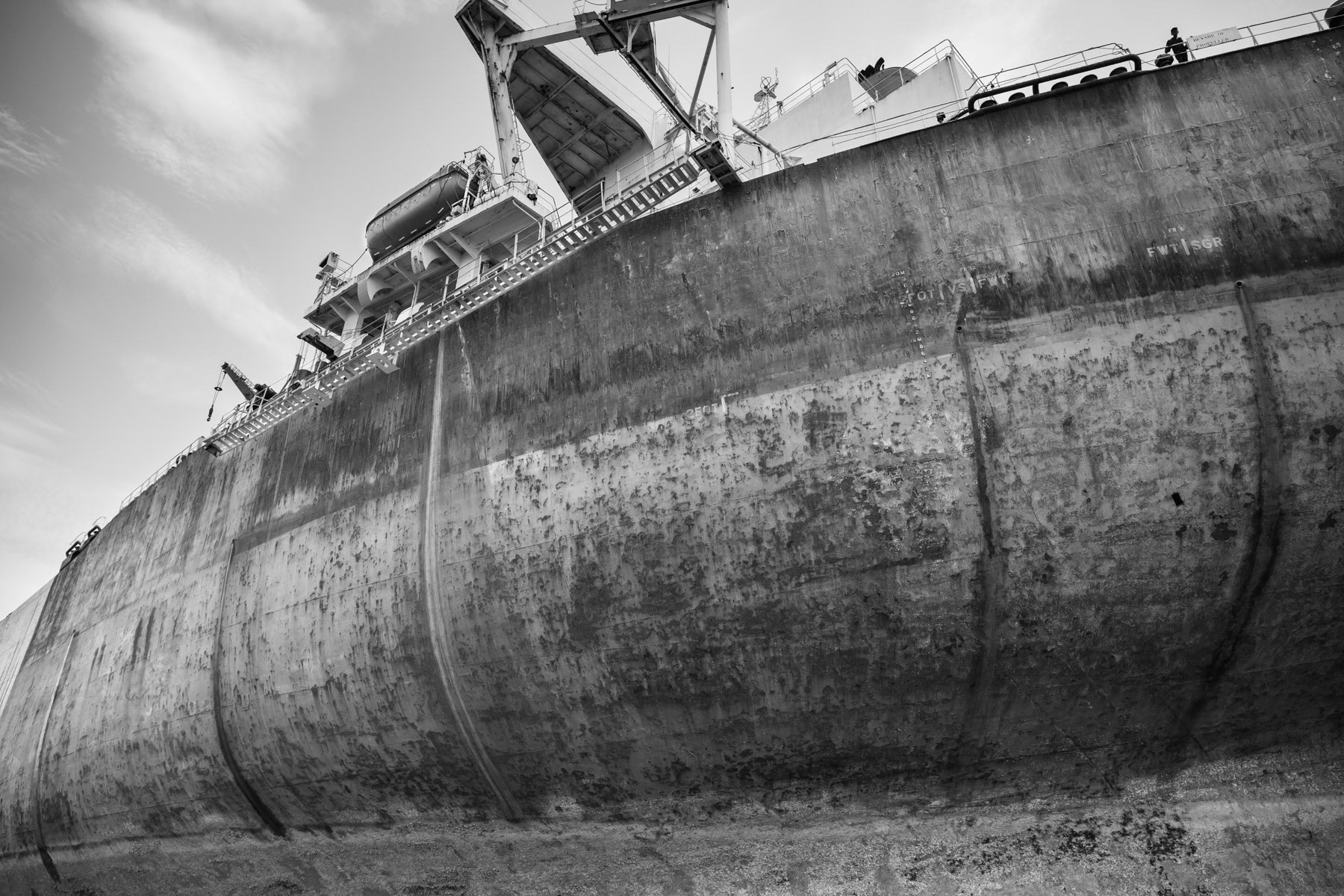
Ship before being dismembered in slices, Bhatiary ship-breaking yards, Chittagong, June 2015

Fifteen year old boy working as helper on the ship breaking yards of Chittagong, Bhatiary, Bangladesh, October 2014
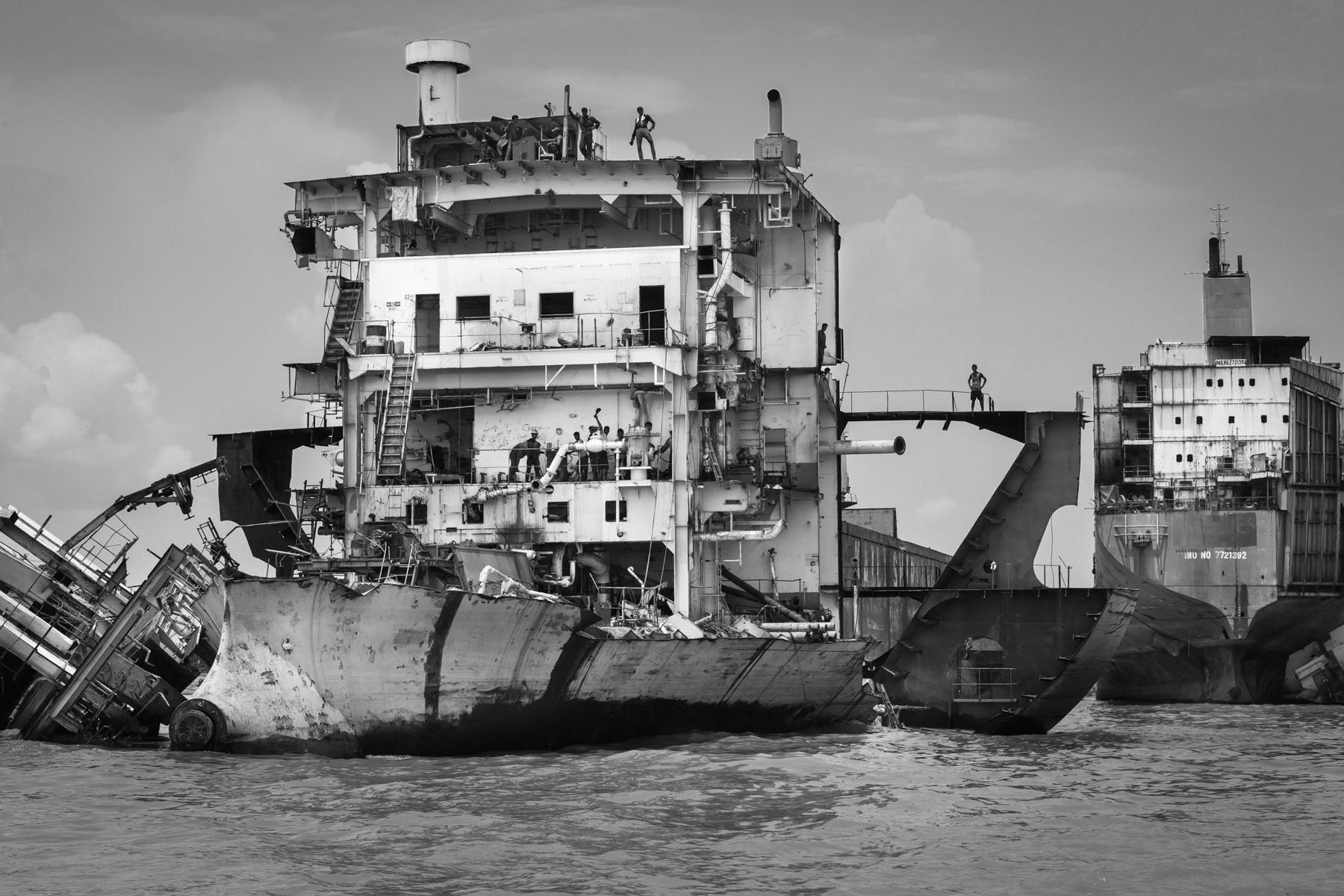
Final stage of a dismembered boat. Bhatiary ship breaking yards, Chittagong, Bangladesh, June 2015
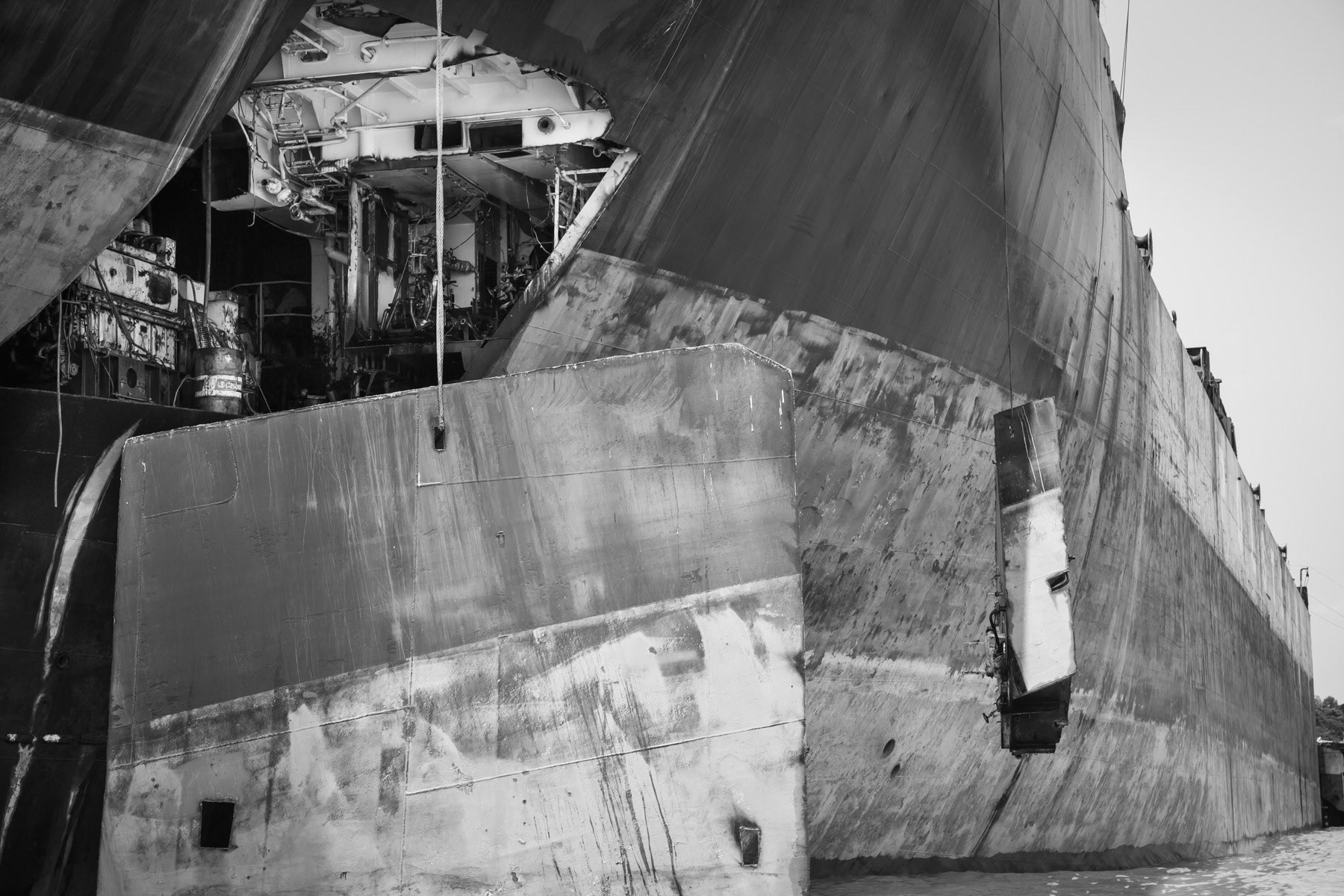
Genrators, engines and fuel are usually first extracted before the ship is cut in parts. During this breaking up stage a lot of oil, fuel and other toxic waste finds it way on the over polluted beaches and sea. Bhatiary ship breaking yards, Bangladesh, June 2015
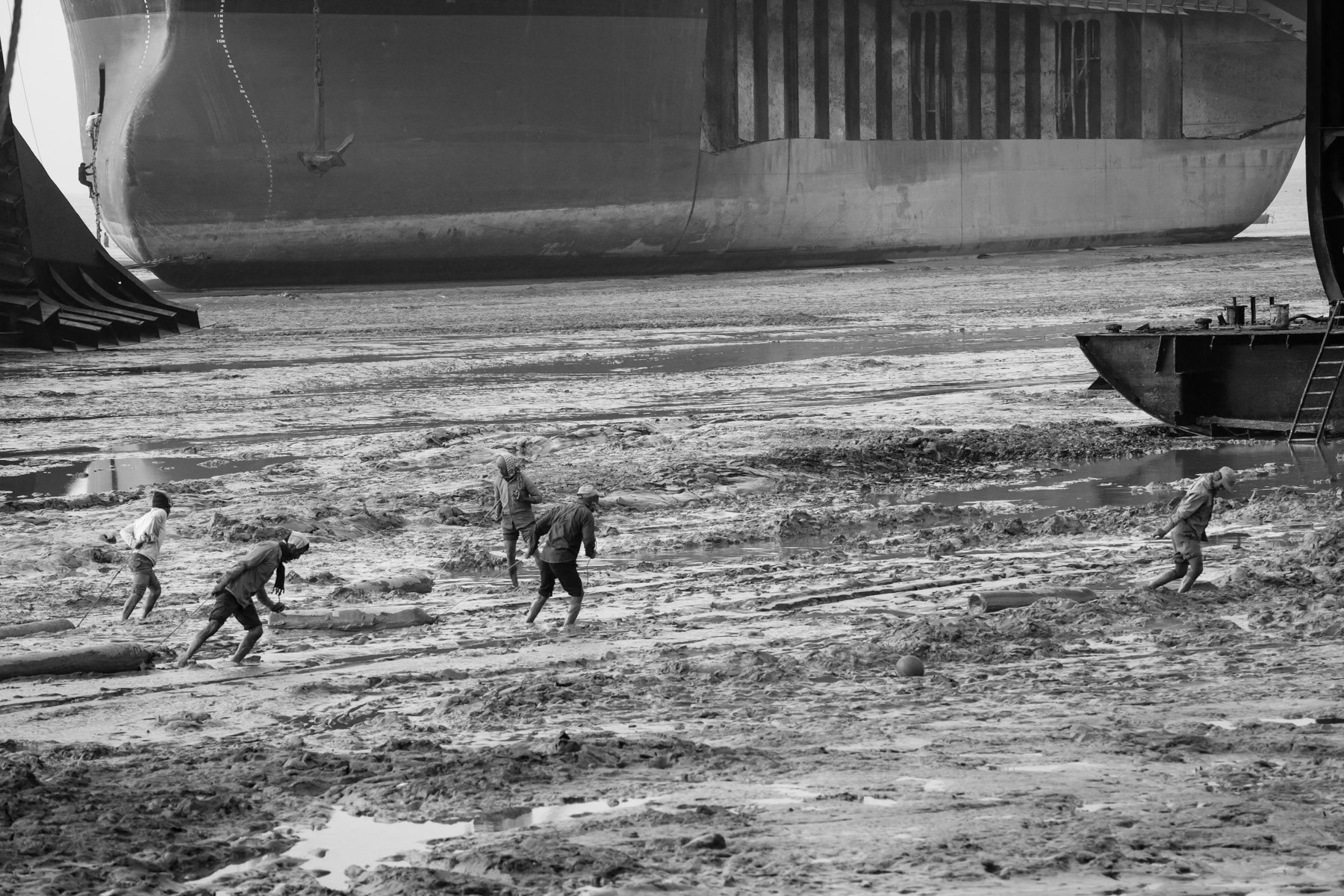
Workers moving gaz tanks through the mud, ship breaking yards, Bangladesh, December 2015
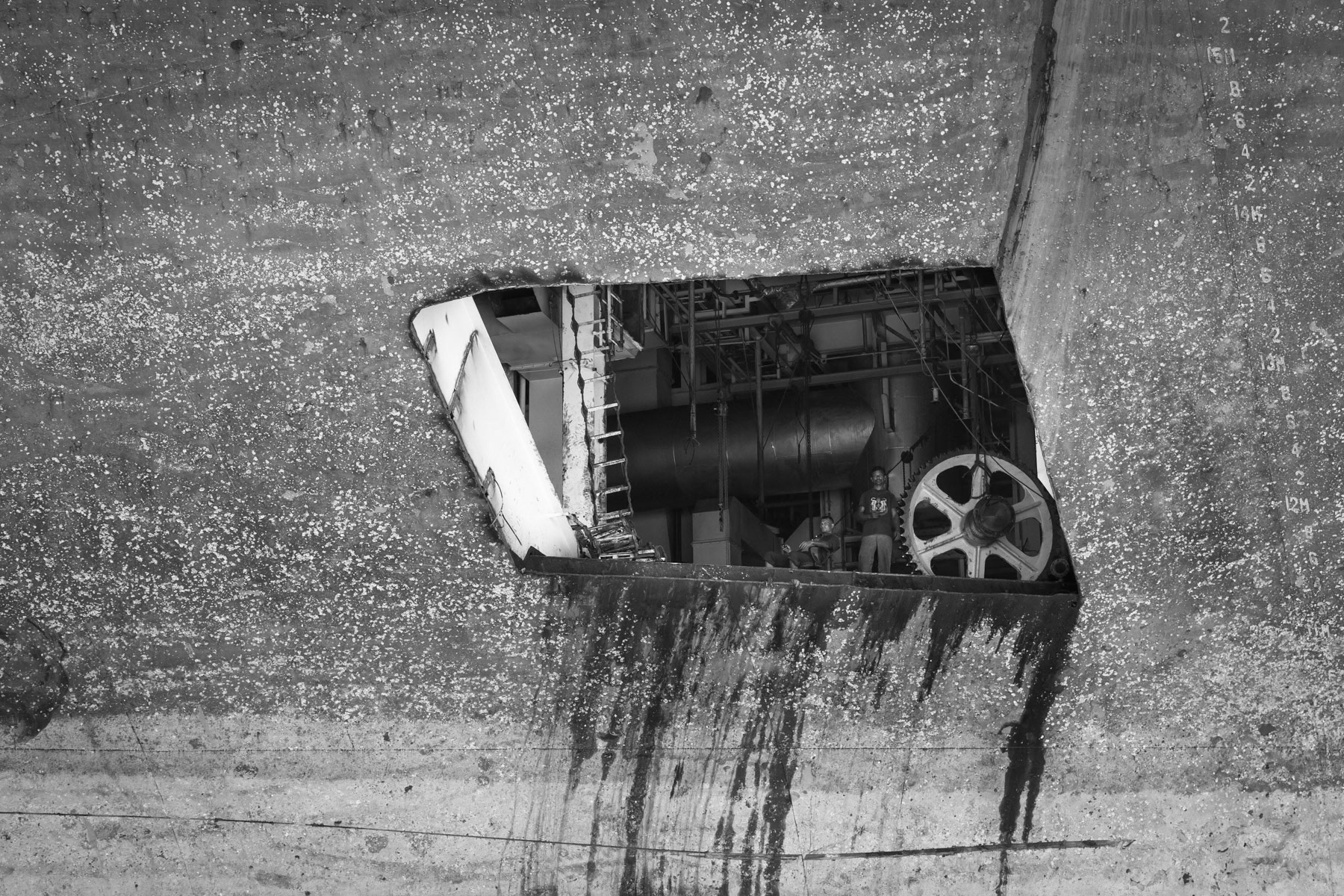
Genrators, engines and fuel are usually first extracted before the ship is cut in parts. During this breaking up stage a lot of oil, fuel and other toxic waste finds it way on the over polluted beaches and sea. Bhatiary ship breaking yards, Bangladesh, June 2015
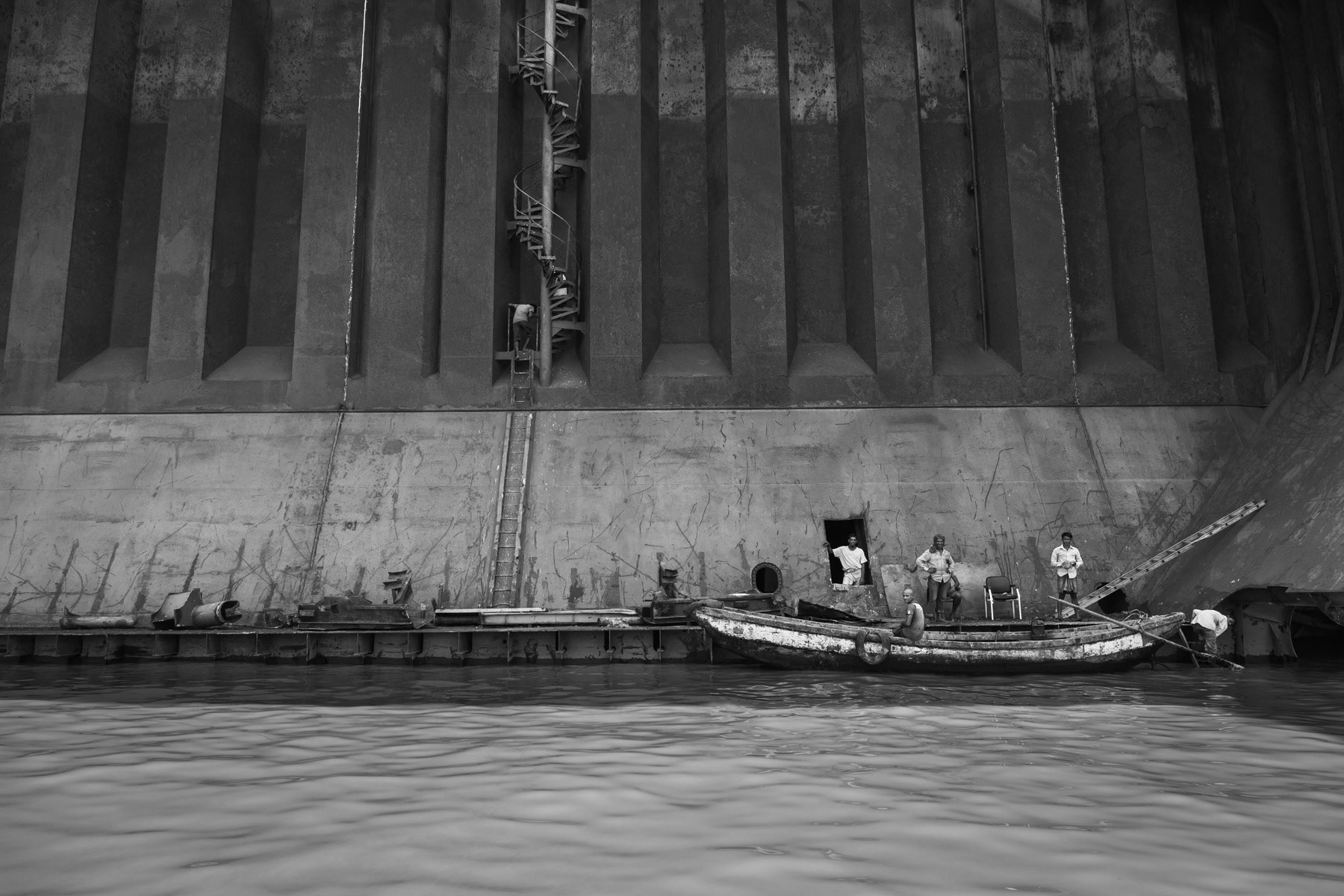
Ship-breaking yard workers reaching the inner side of the ship's hull, Kumira ship-breaking yards, Bangladesh, June 2015
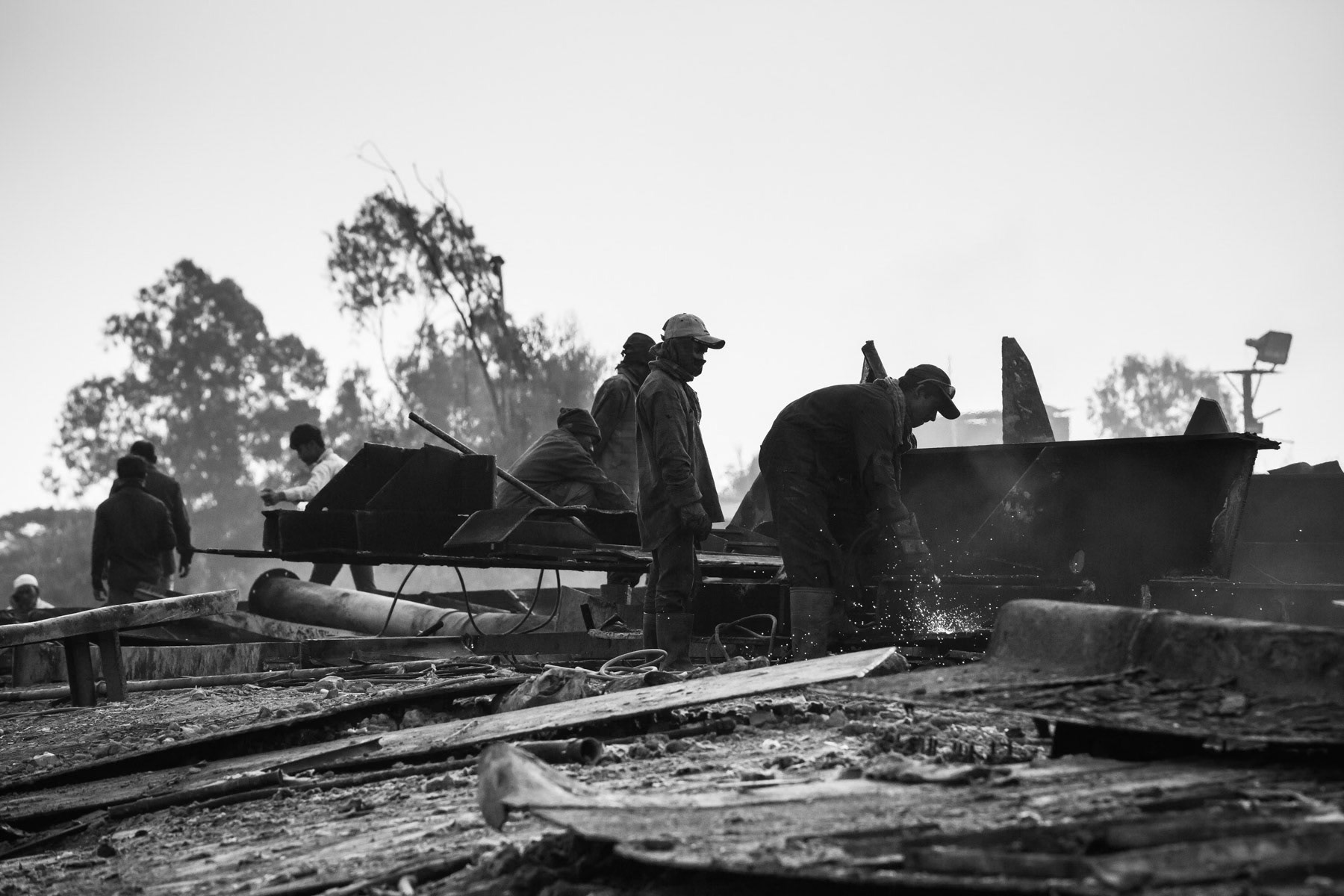
Ship cutters at work on the beaches north of Chittagong, December 2015
